Applied Learning Programme (ALP) eSTEM@YCKPS
ESTEM@YCKPS – Nurturing Eco-Stewards of Tomorrow
At Yio Chu Kang Primary School, our Applied Learning Programme (ALP) is rooted in Environmental STEM (ESTEM) — a vibrant and purposeful integration of environmental education and STEM learning. We believe that environmental education is more than just a subject; it is a call to action. It is essential for raising awareness, fostering responsible behavior, and equipping our students with the skills and mindset to tackle environmental challenges.
By embedding sustainability into our curriculum, we aim to cultivate eco-conscious learners who actively contribute to a greener and more sustainable future.
Our 3-Tier ACE Approach: ESTEM@YCKPS
To nurture our young environmental stewards, we employ a structured ACE approach:
🌱 A – Awareness about the Environment
Our programmes promote environmental awareness, helping students understand the impact of human behavior on Earth. Through activities such as recycling projects, commemorating environmental events, assembly programmes and interactive recess engagement, students develop a deep appreciation for nature and the need for sustainable practices. With increased awareness, we become more conscious of how our actions affect the planet and are more likely to adopt environmentally friendly behaviors.
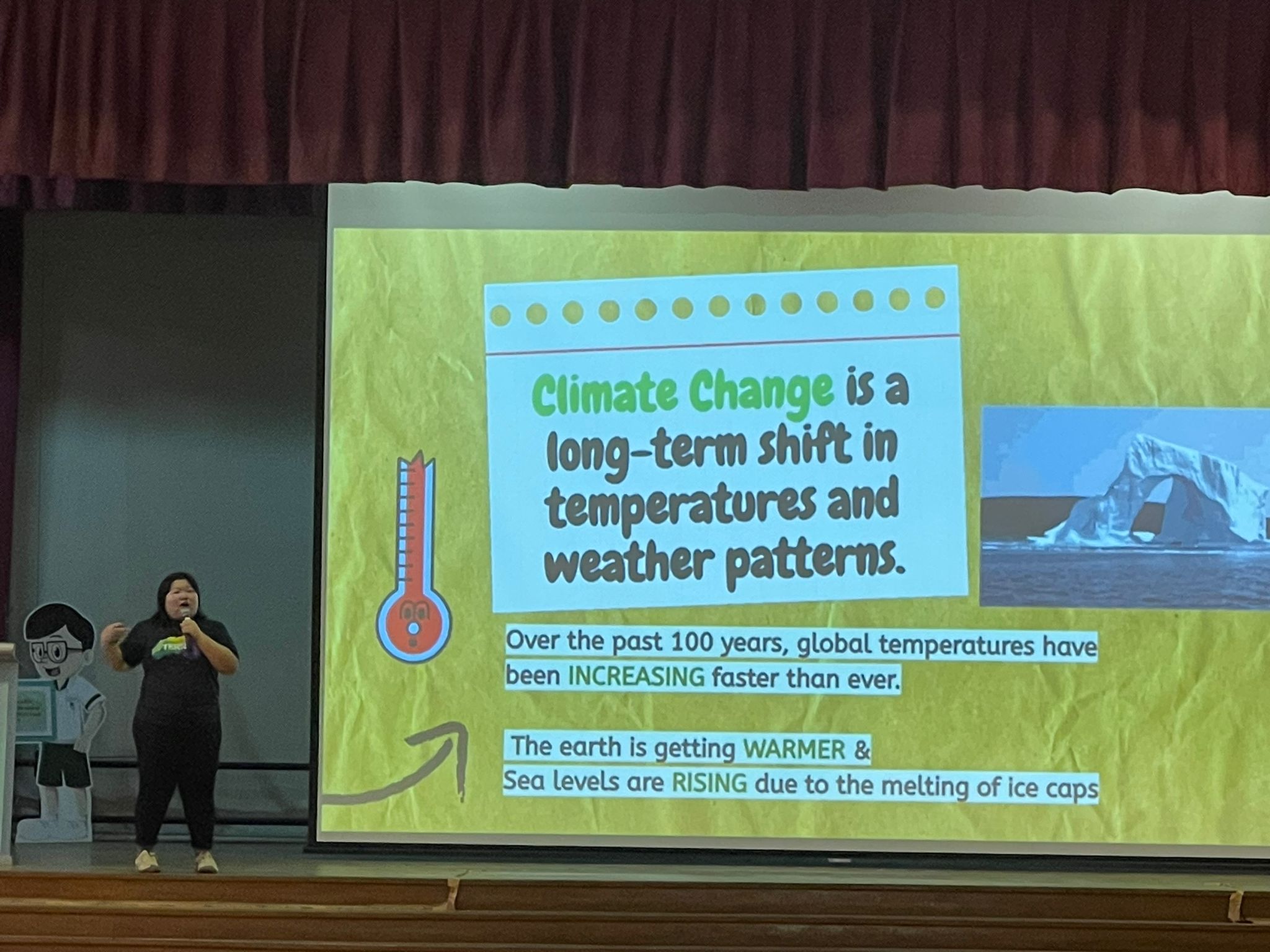
|
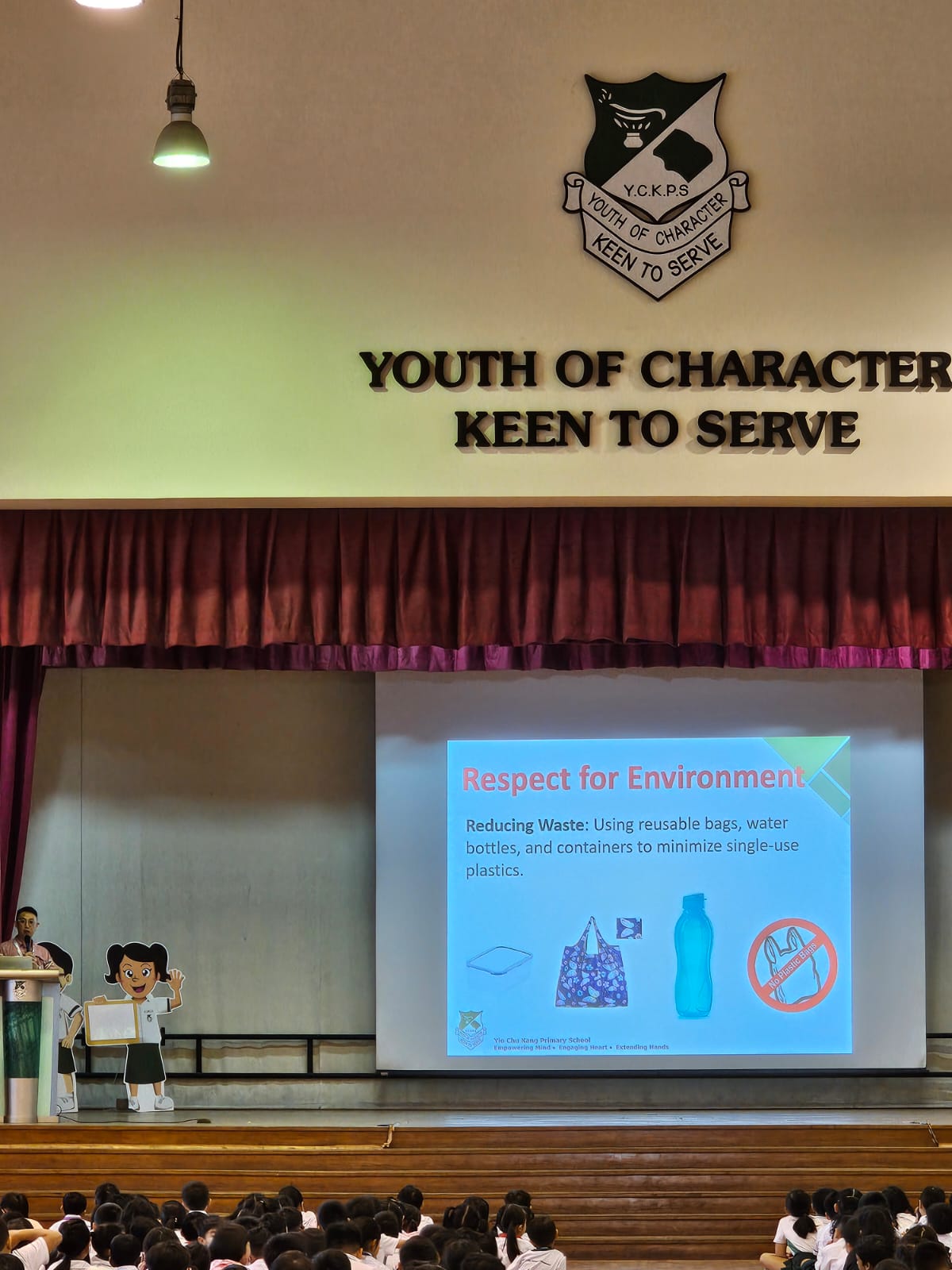
|
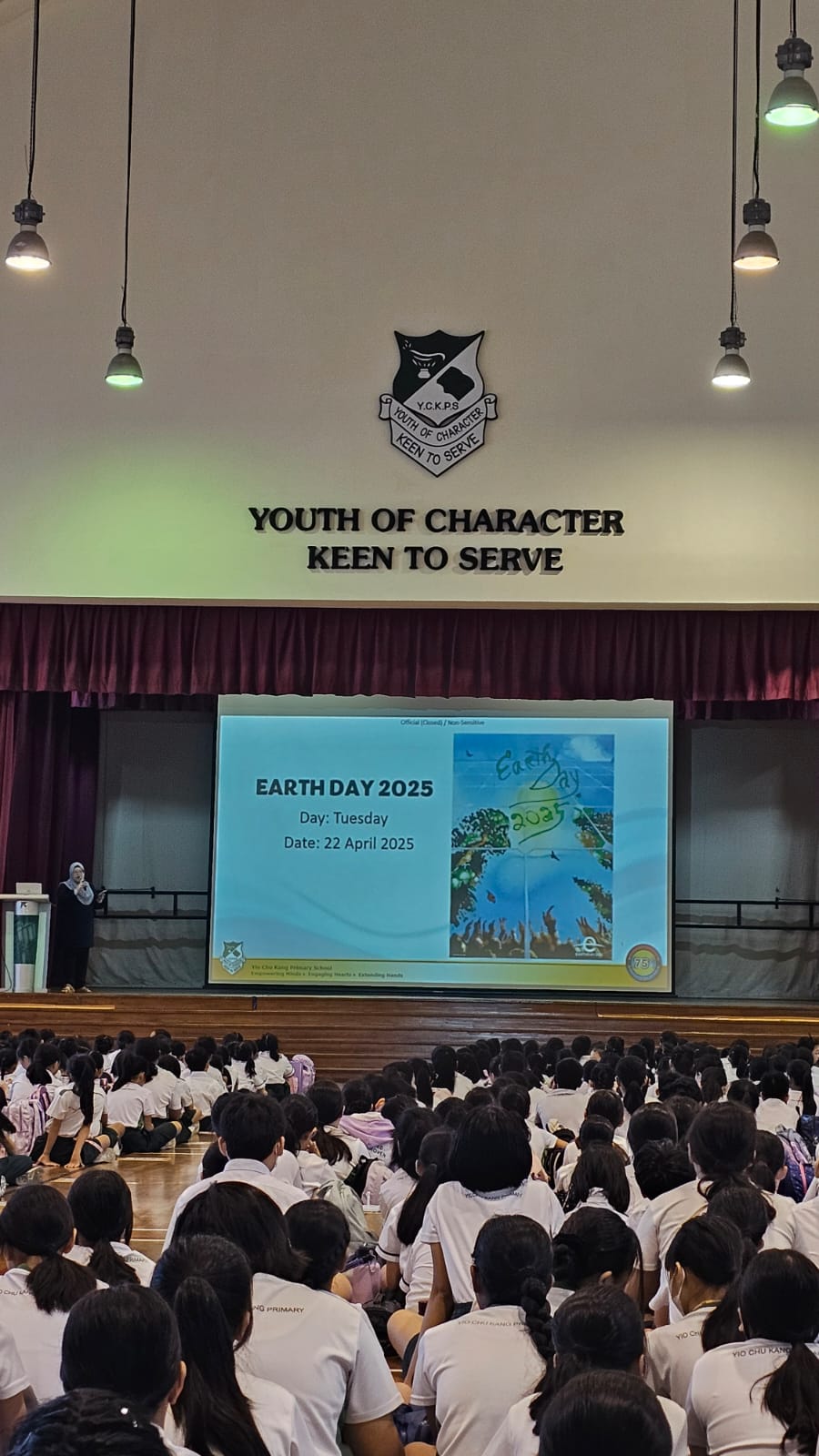
|
|---|---|---|
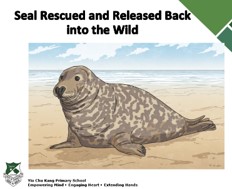
|

|
|
|
Assembly talks and Environmental News Segments in the classroom create awareness of current environmental issues and encourage protecting the environment. |
||
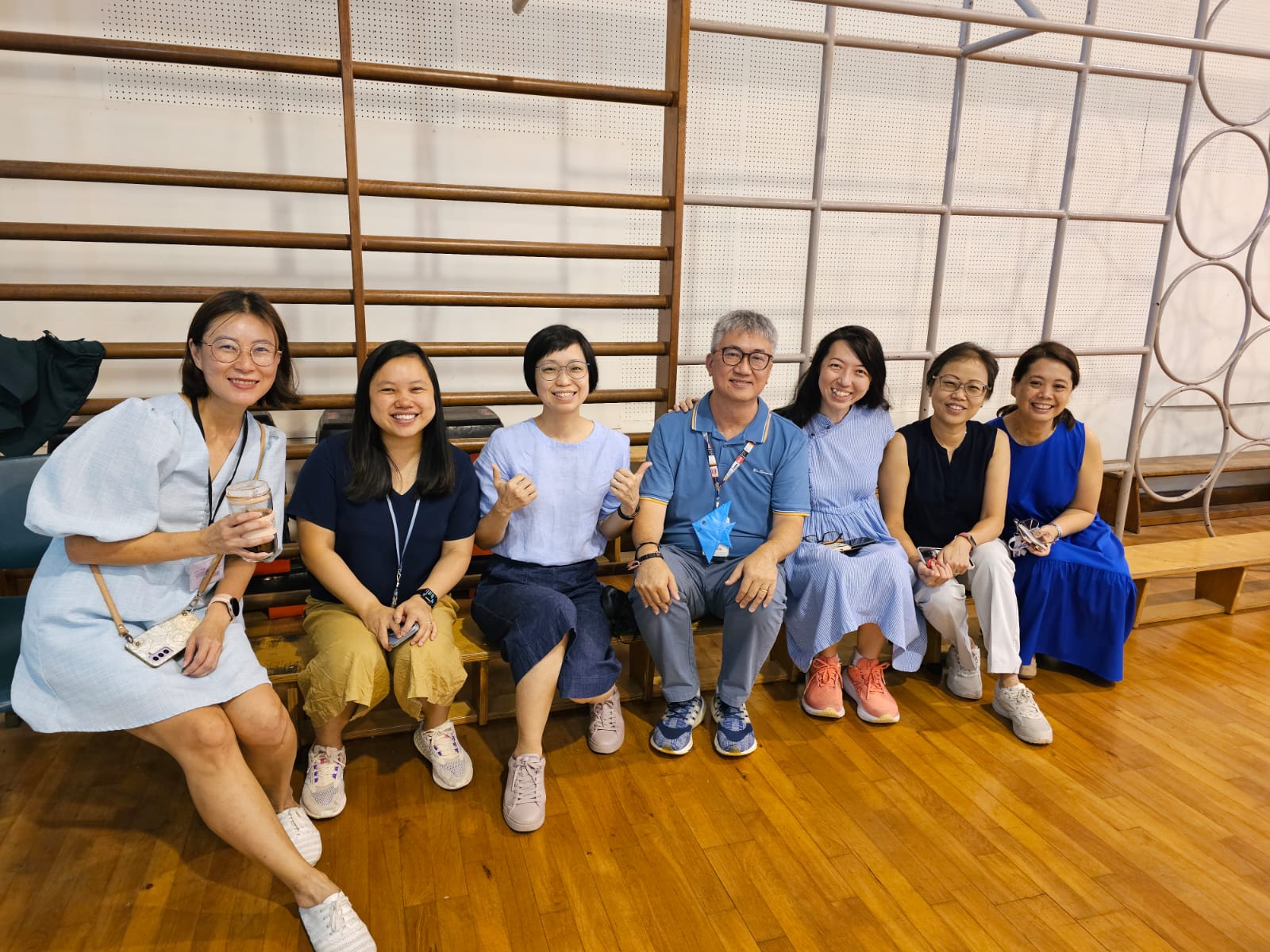
|
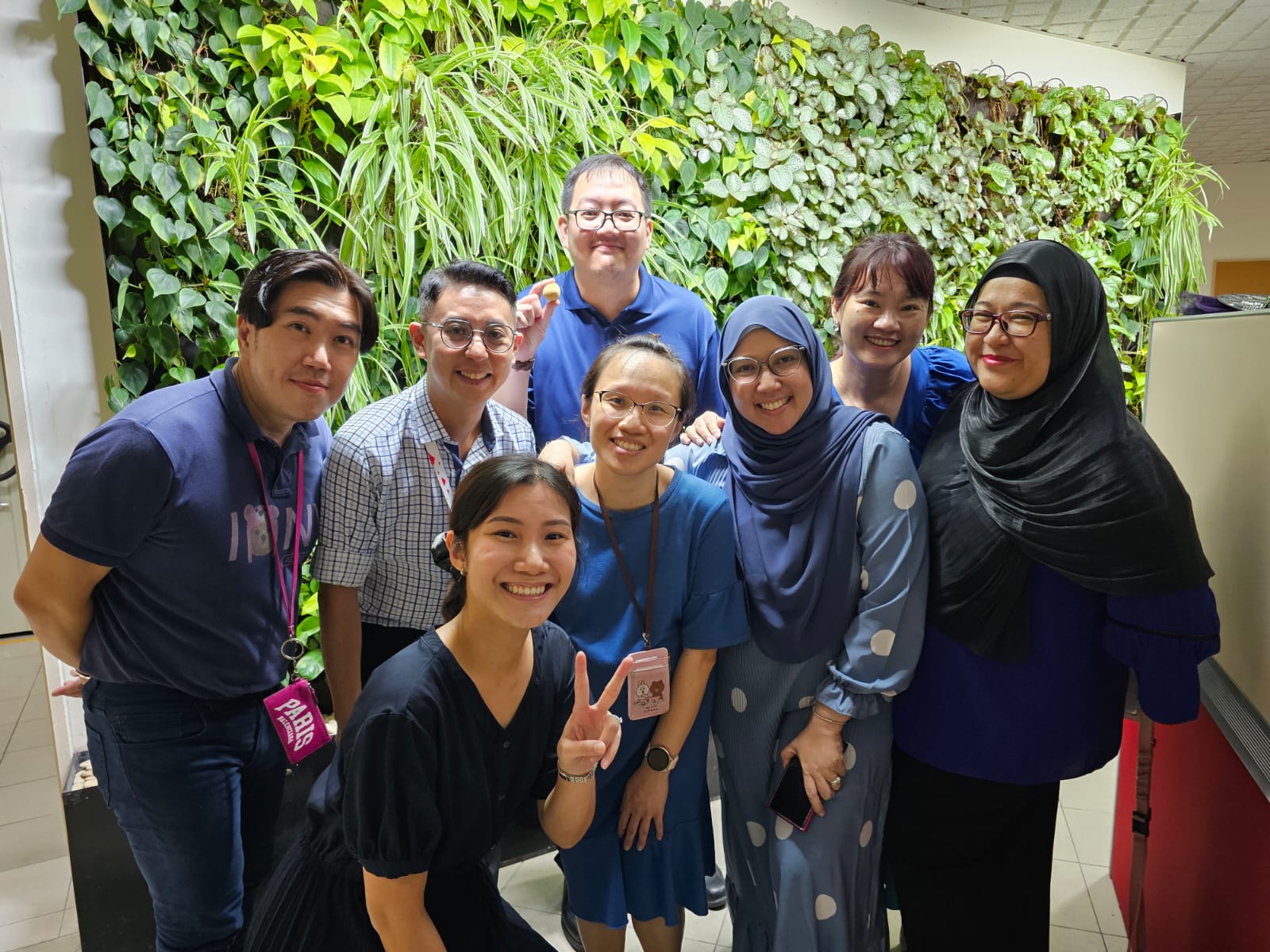
|
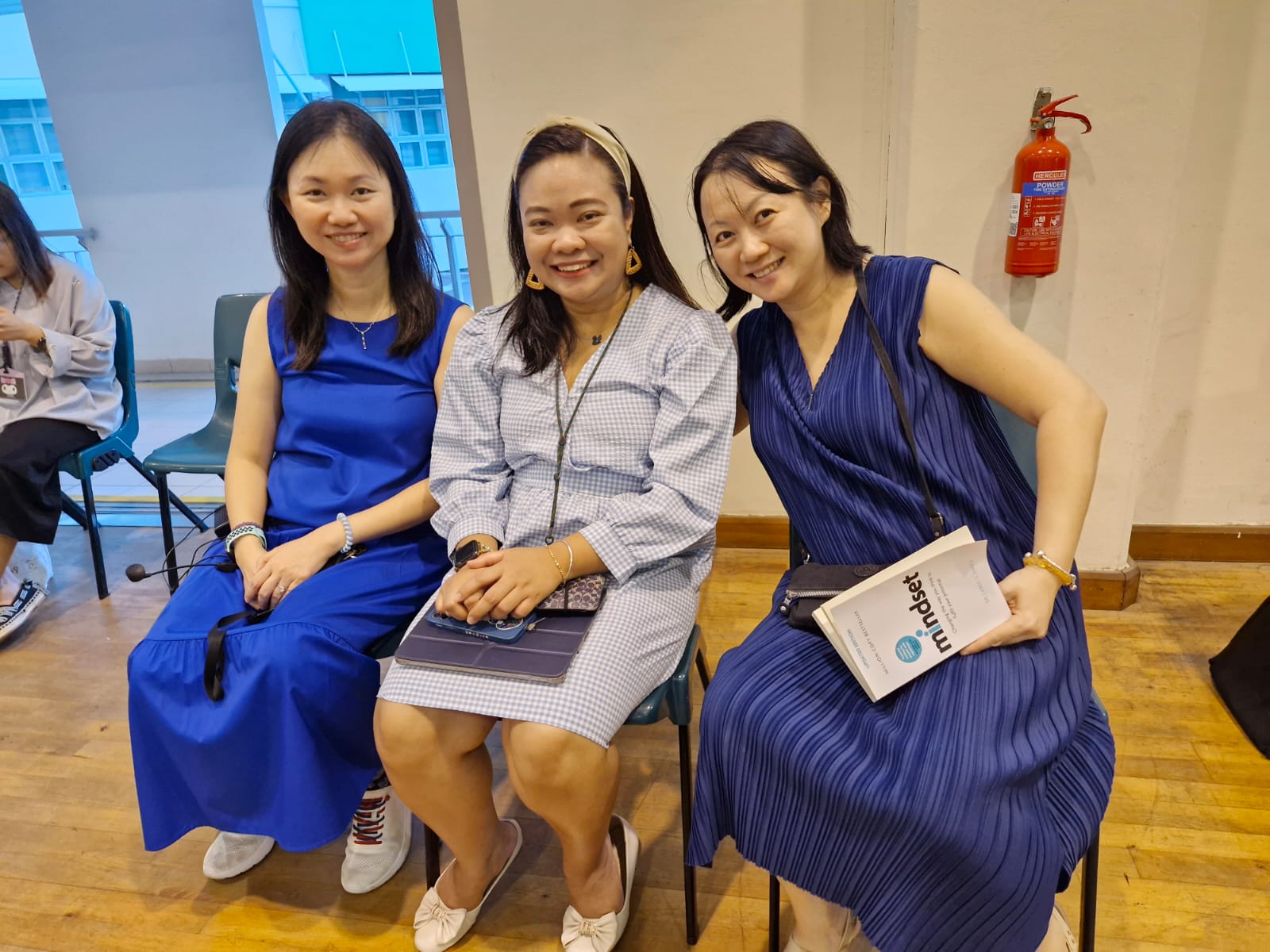
|
|---|---|---|
|
Staff of YCKPS are dressed in blue to commemorate World Water Day and to show our support in water conservation. |
||
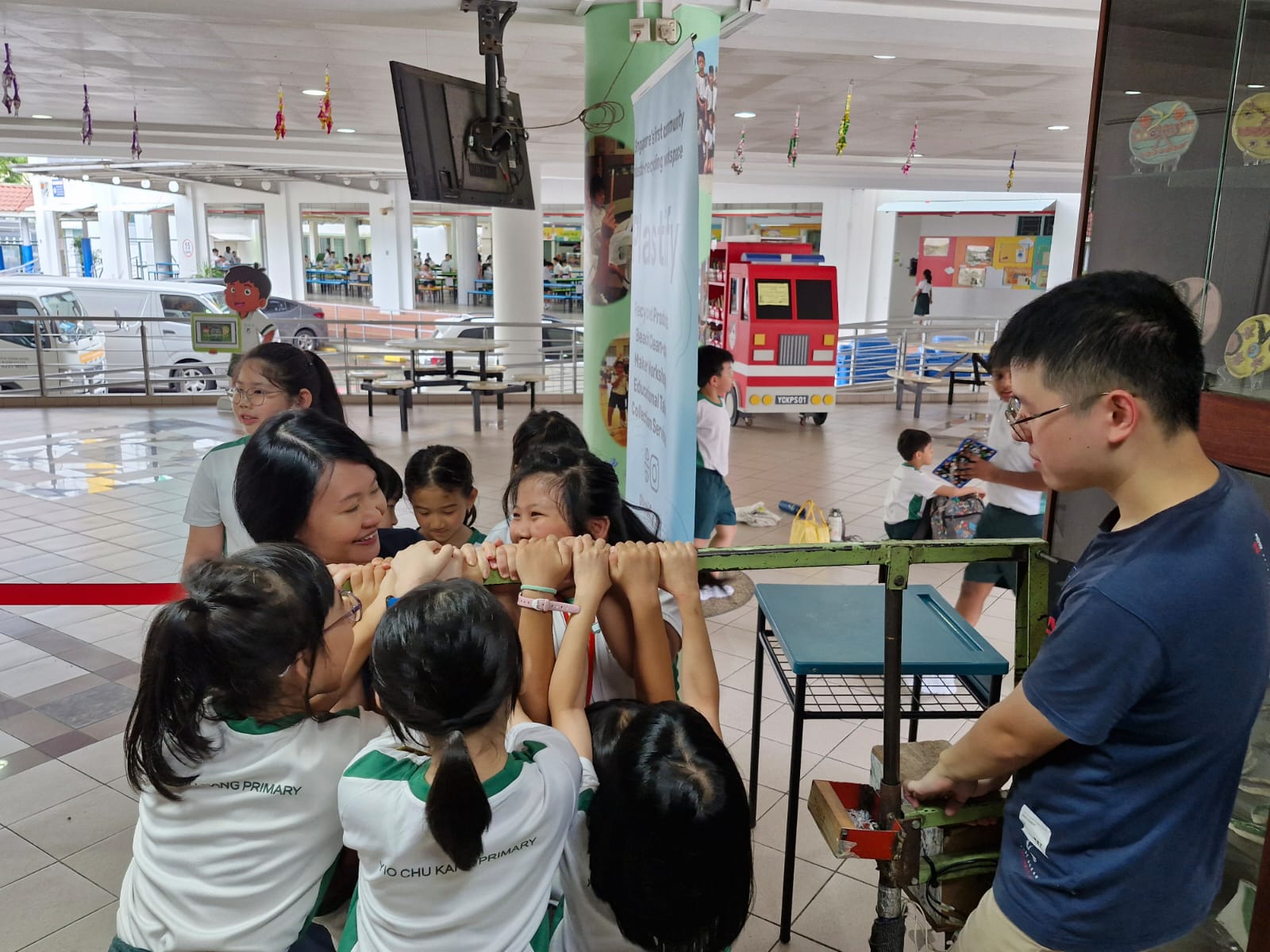
|
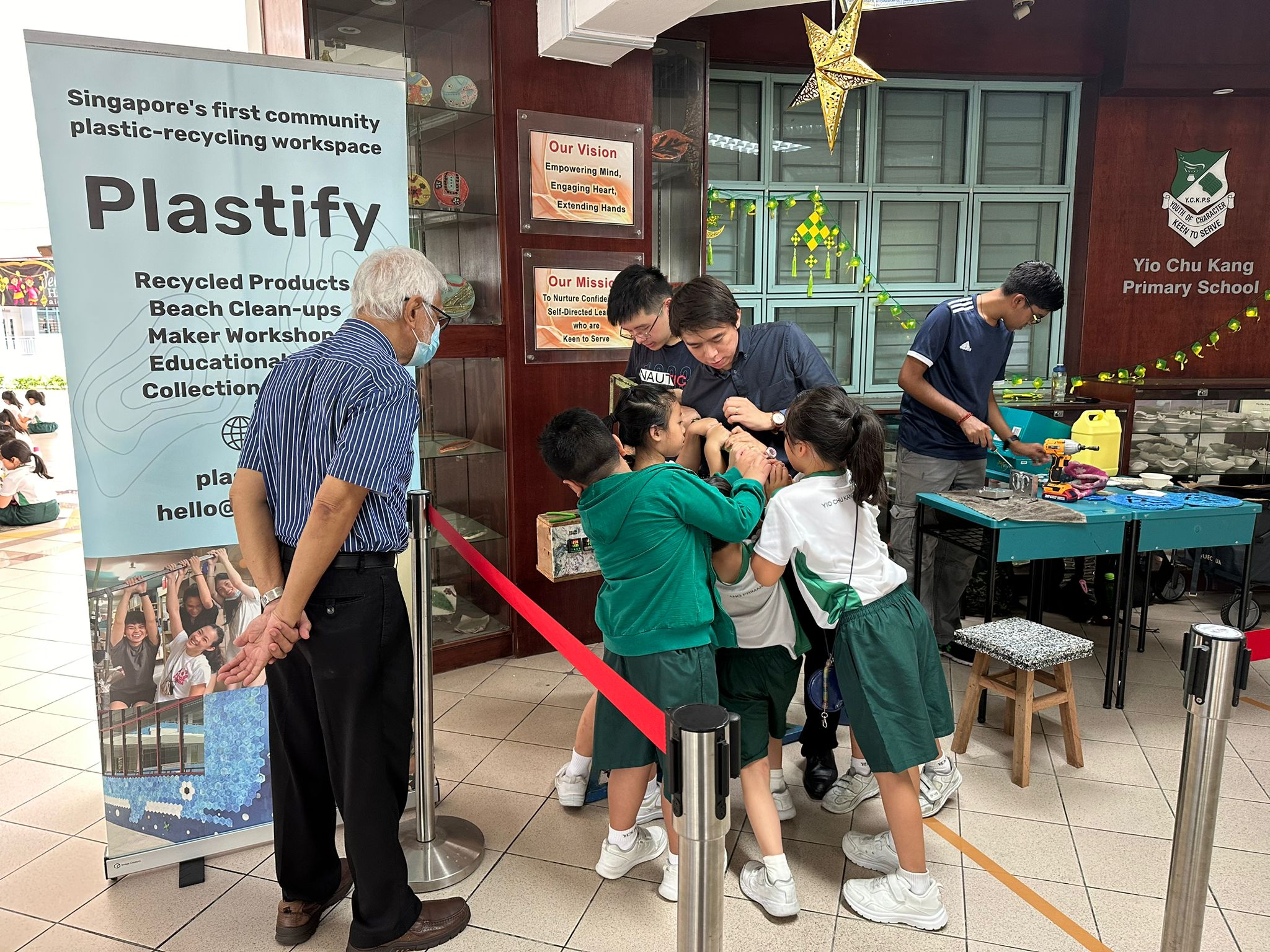
|
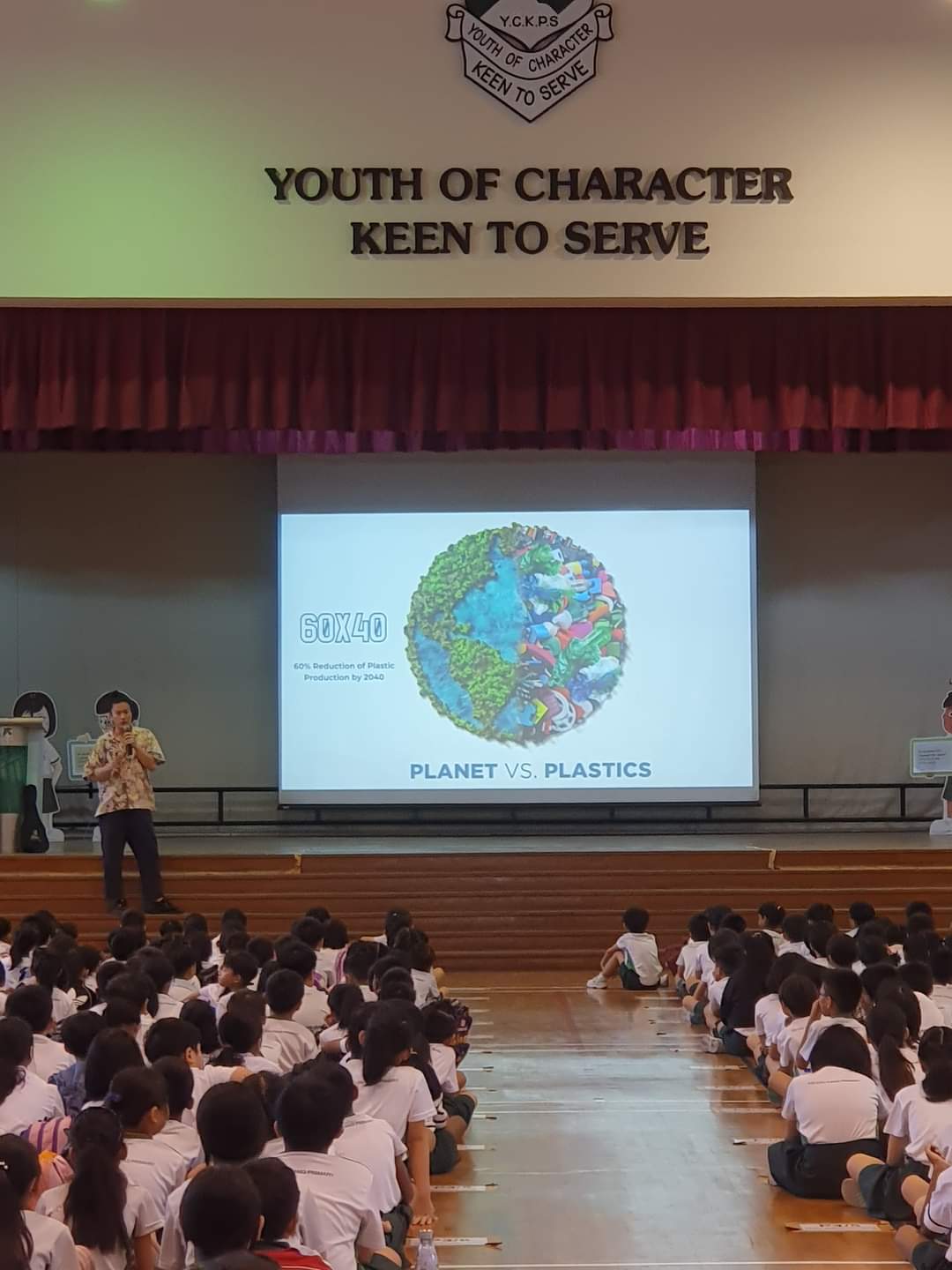
|
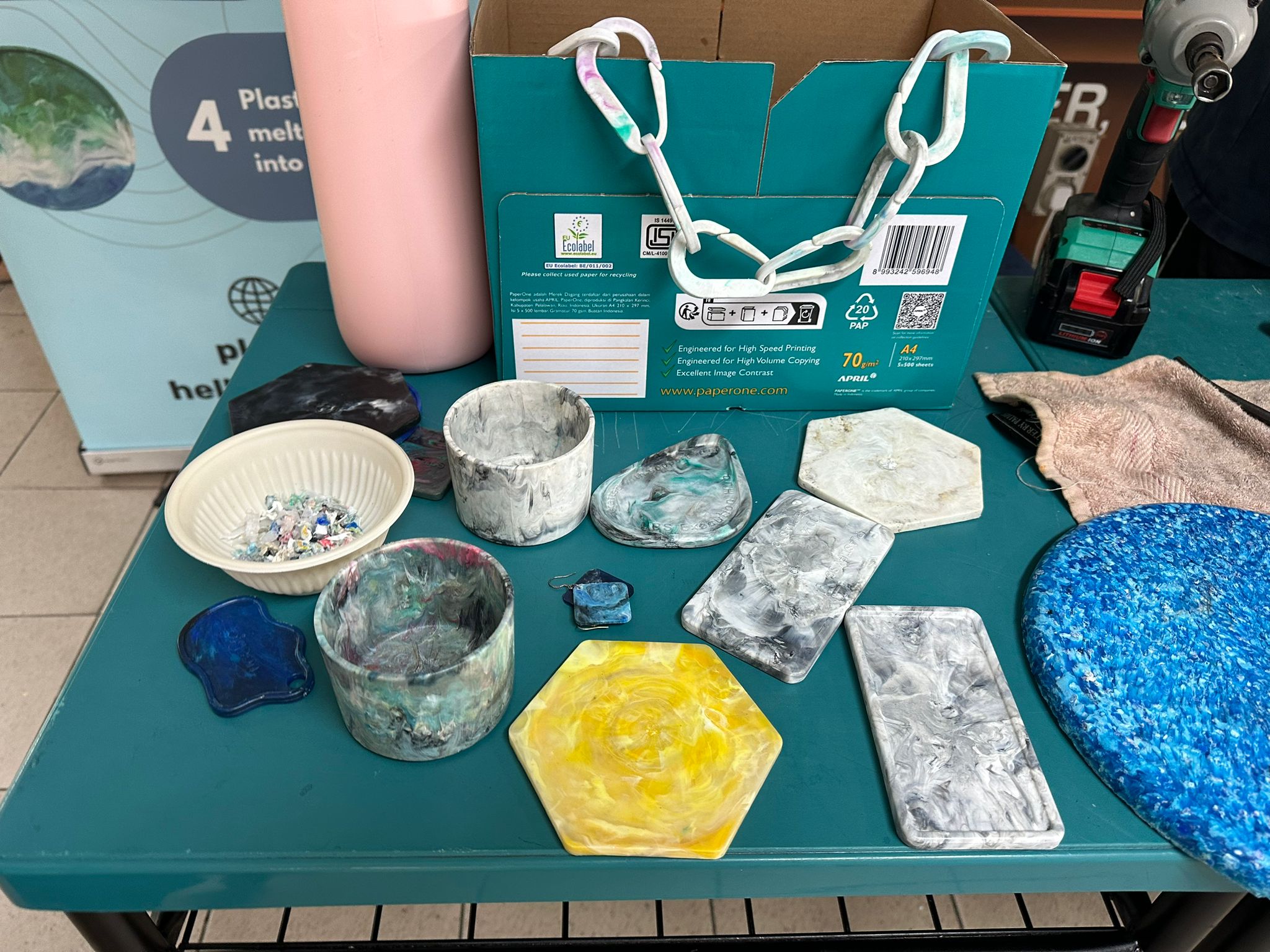
|
|
We commemorated Earth Day with a sea of blue and green outfits worn by students and teachers. The day started with assembly talk from Plastify sharing with students innovative methods to transform waste into practical materials. Through hands-on demonstration, students had the opportunity to grasp the recycling process of plastic and experience turning plastic shards into recycled products such as carabiners and coasters. |
|
🌿 C – Connecting with the Environment
We believe that meaningful experiences in nature cultivate a sense of ownership and responsibility. Through hands-on activities like planting and harvesting plants in our very own hydroponics farm, learning journeys, and ESTEM Project work, students build a personal relationship with the natural world. These experiences allow students to forge meaningful connections with the environment, fostering a sense of responsibility and care for the world around them.
By developing a strong connection with the environment, we nurture empathy for nature and inspire action. We hope to encourage students to take responsibility for the environment and to engage in sustainable behaviors that protect and preserve natural ecosystems.
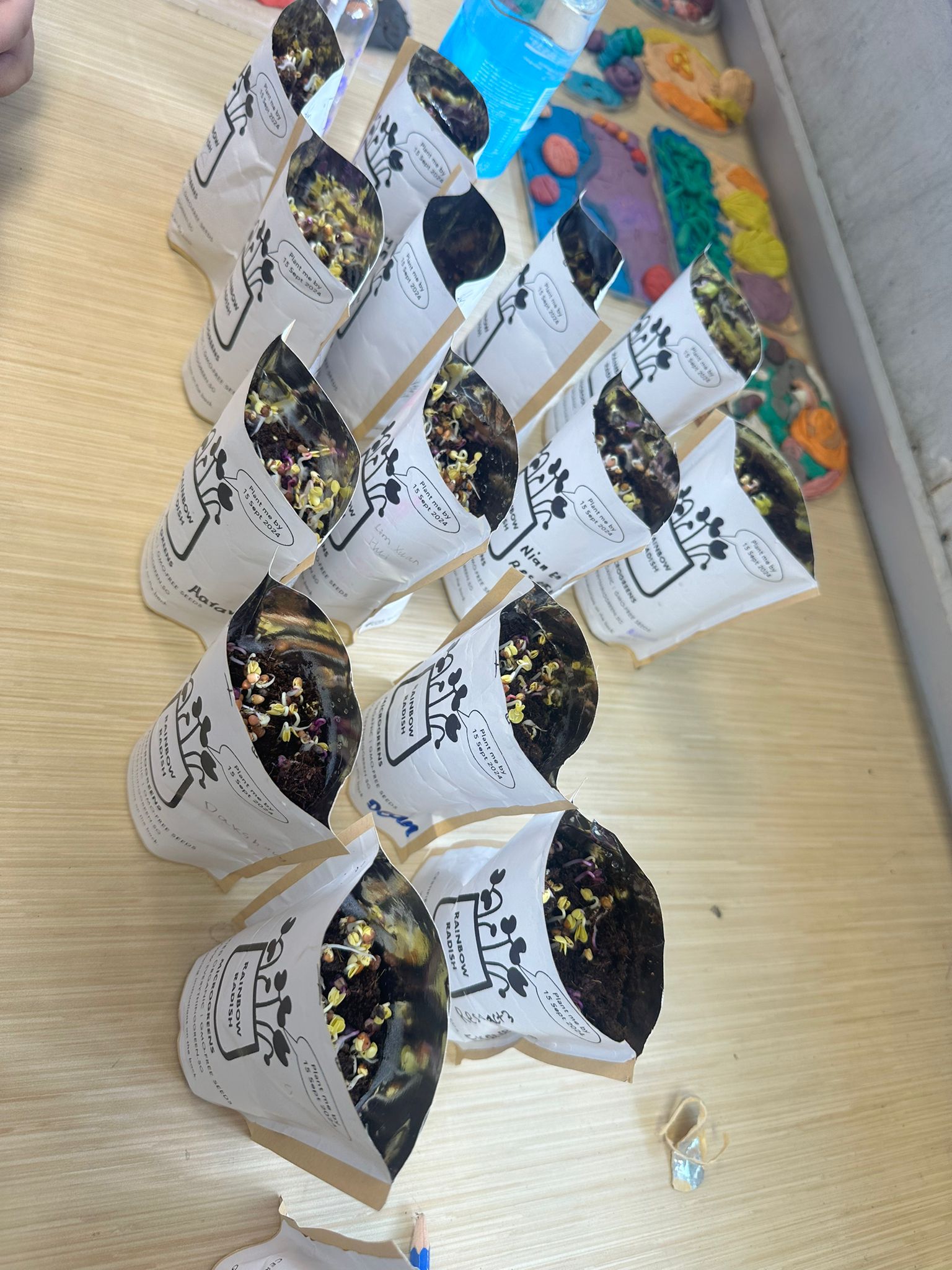
|
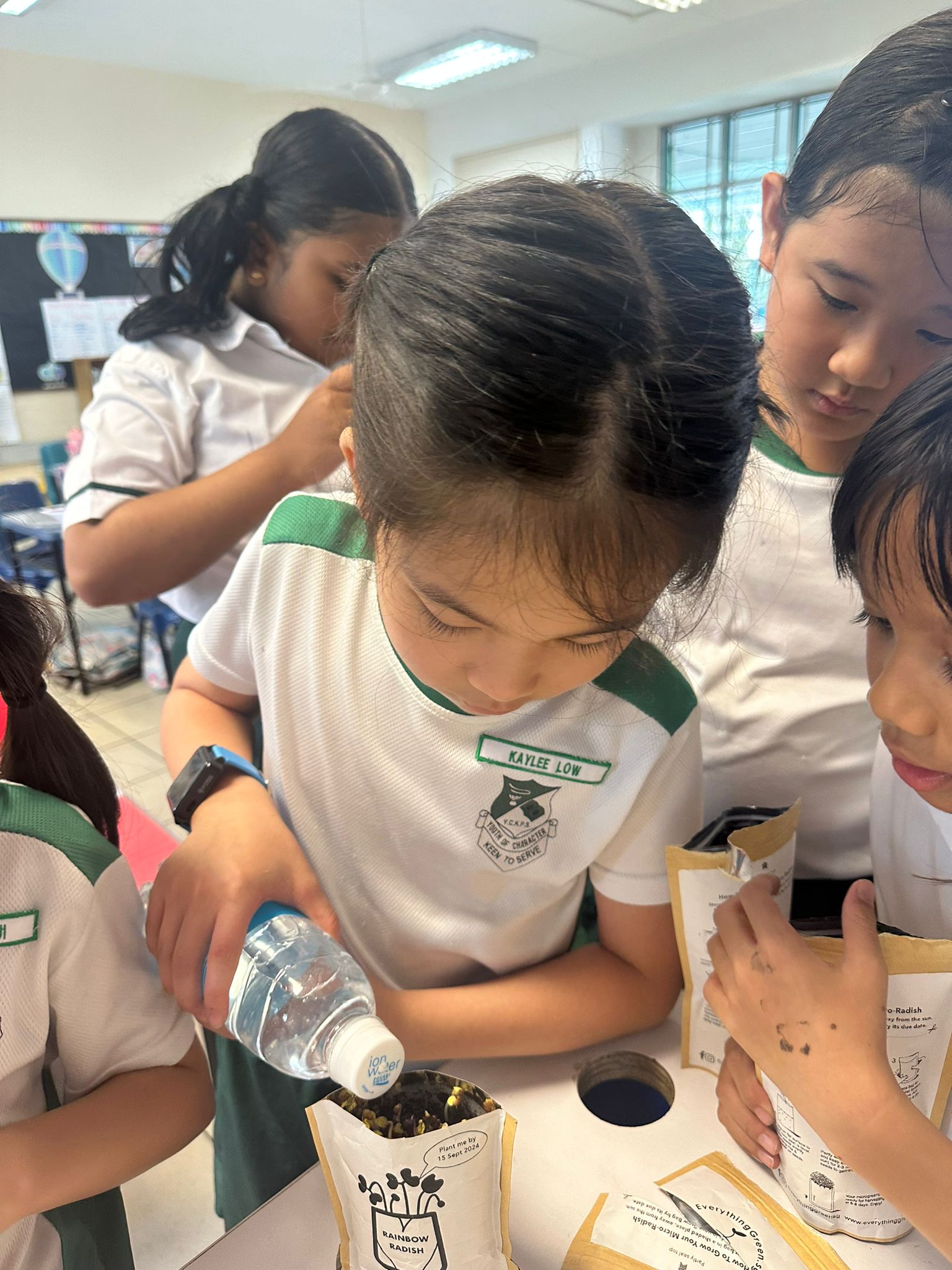
|
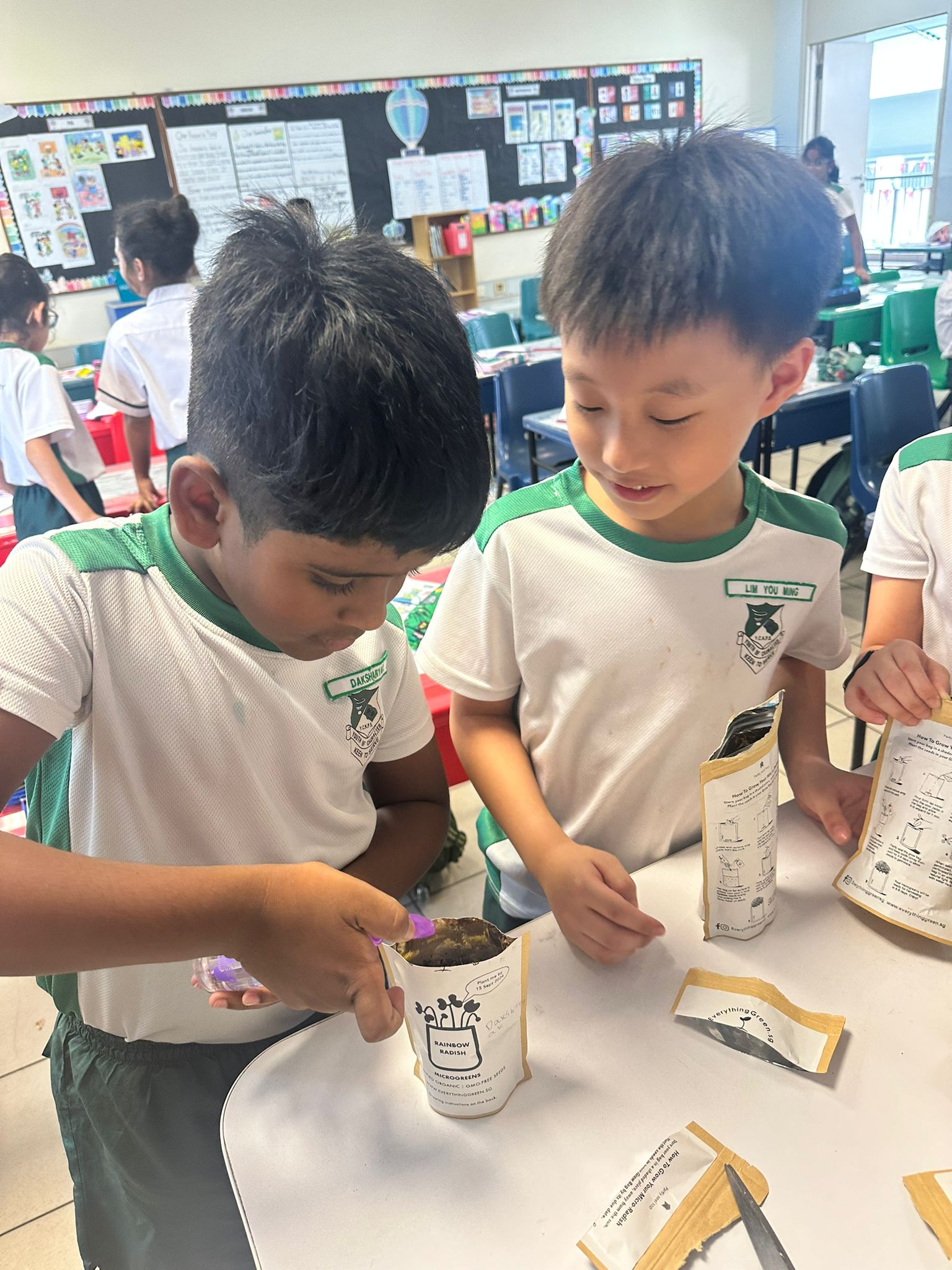
|
|---|---|---|
|
Primary One and Two students had hands-on experience to grow their own vegetable using Microgreen Bags. During this activity, teachers also took the opportunity to emphasize the importance of food sustainability. |
||
E-Stem Project Work for Primary Three to Six students is one of the signature programme designed to create experiences for students to connect with the environment and to understand real-world environmental issues.
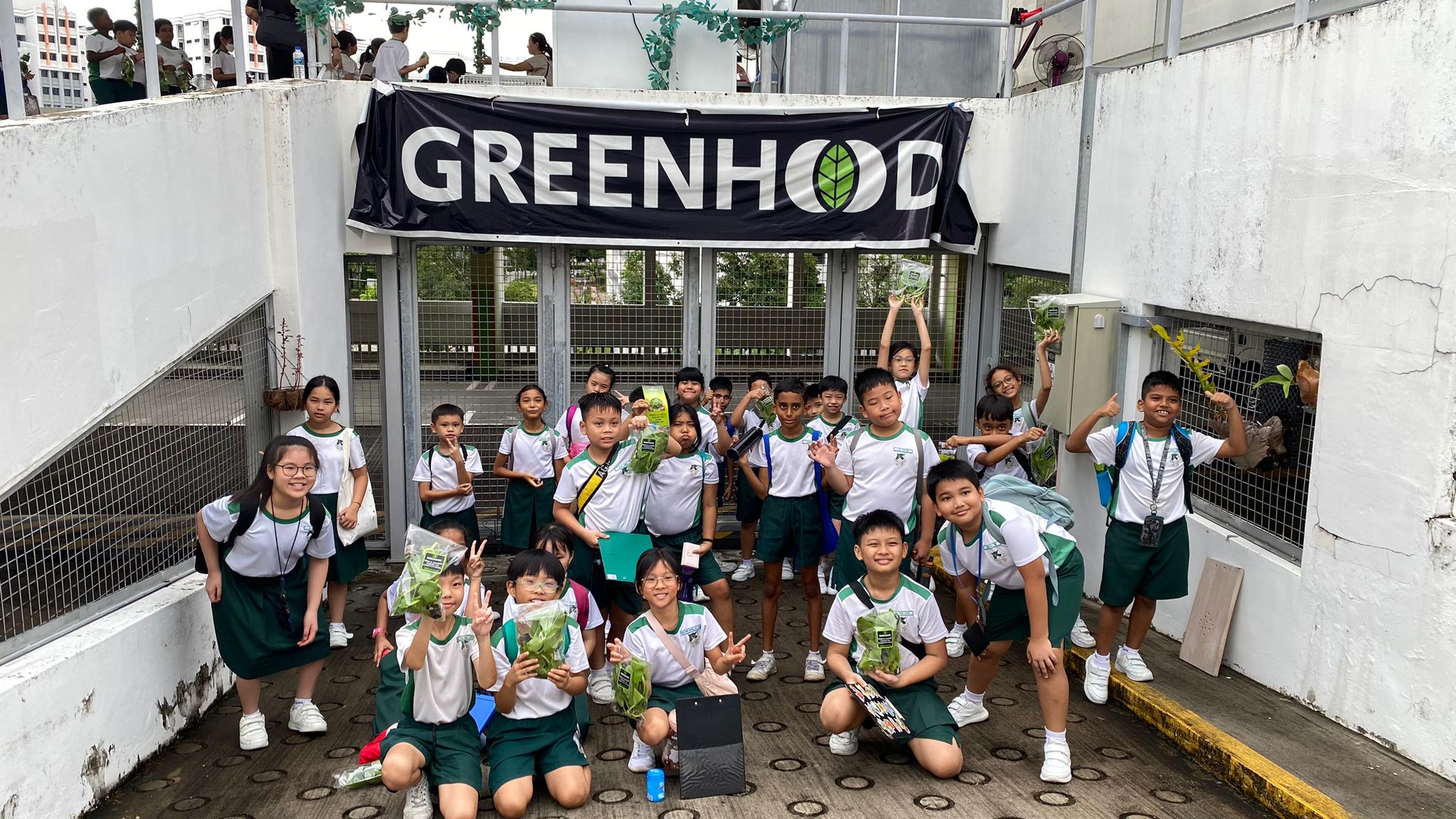
|
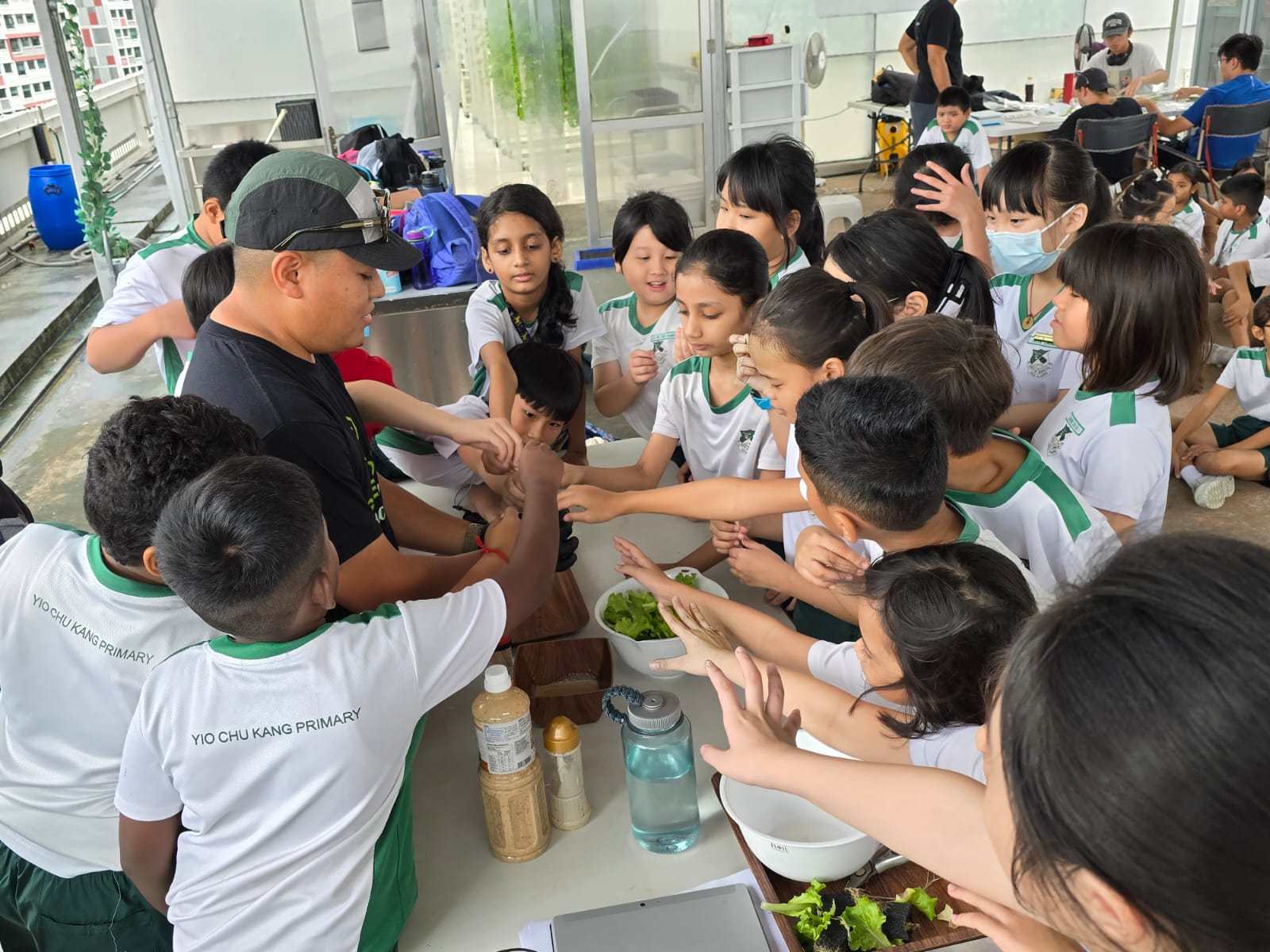
|
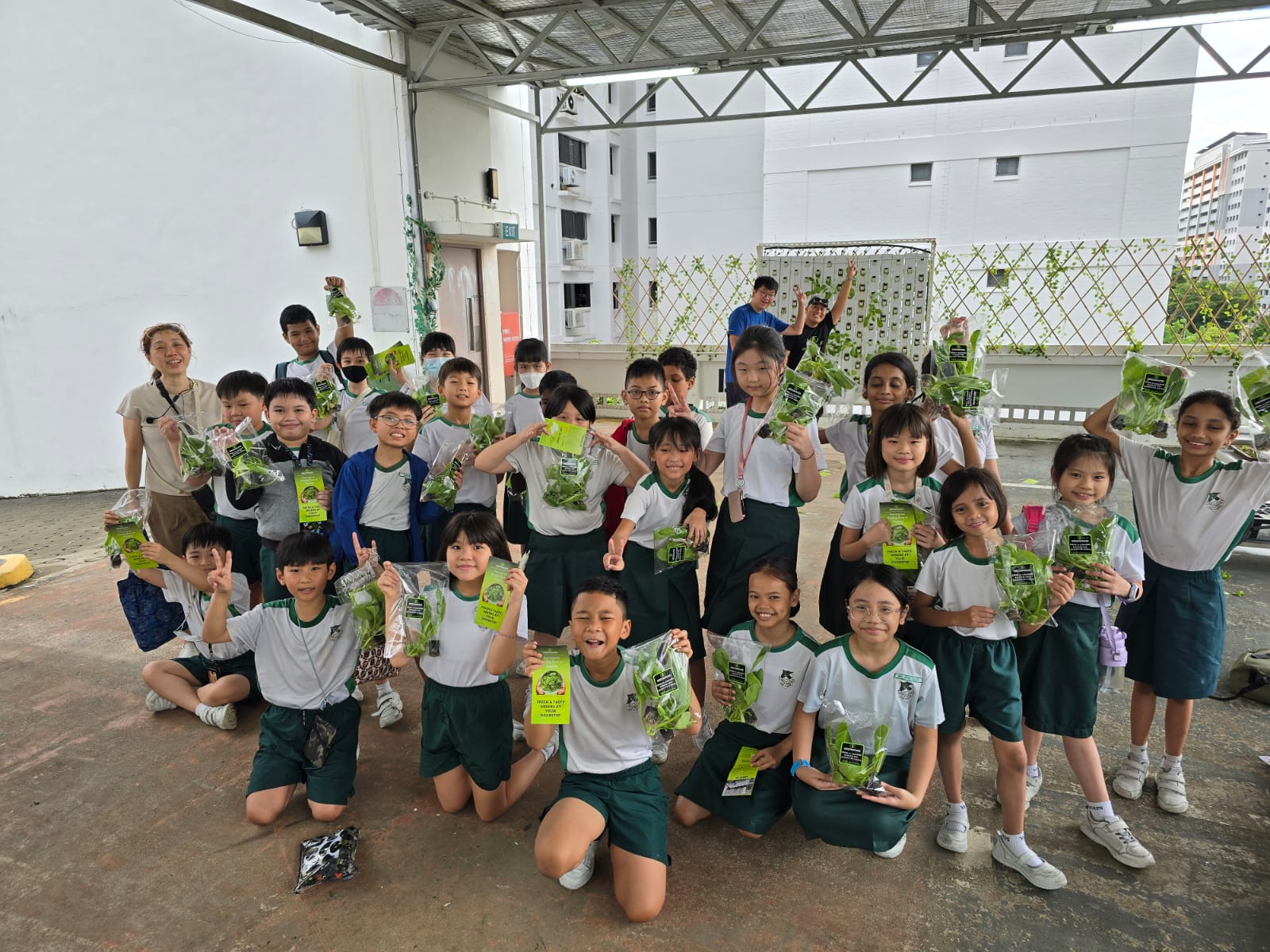
|
|---|---|---|
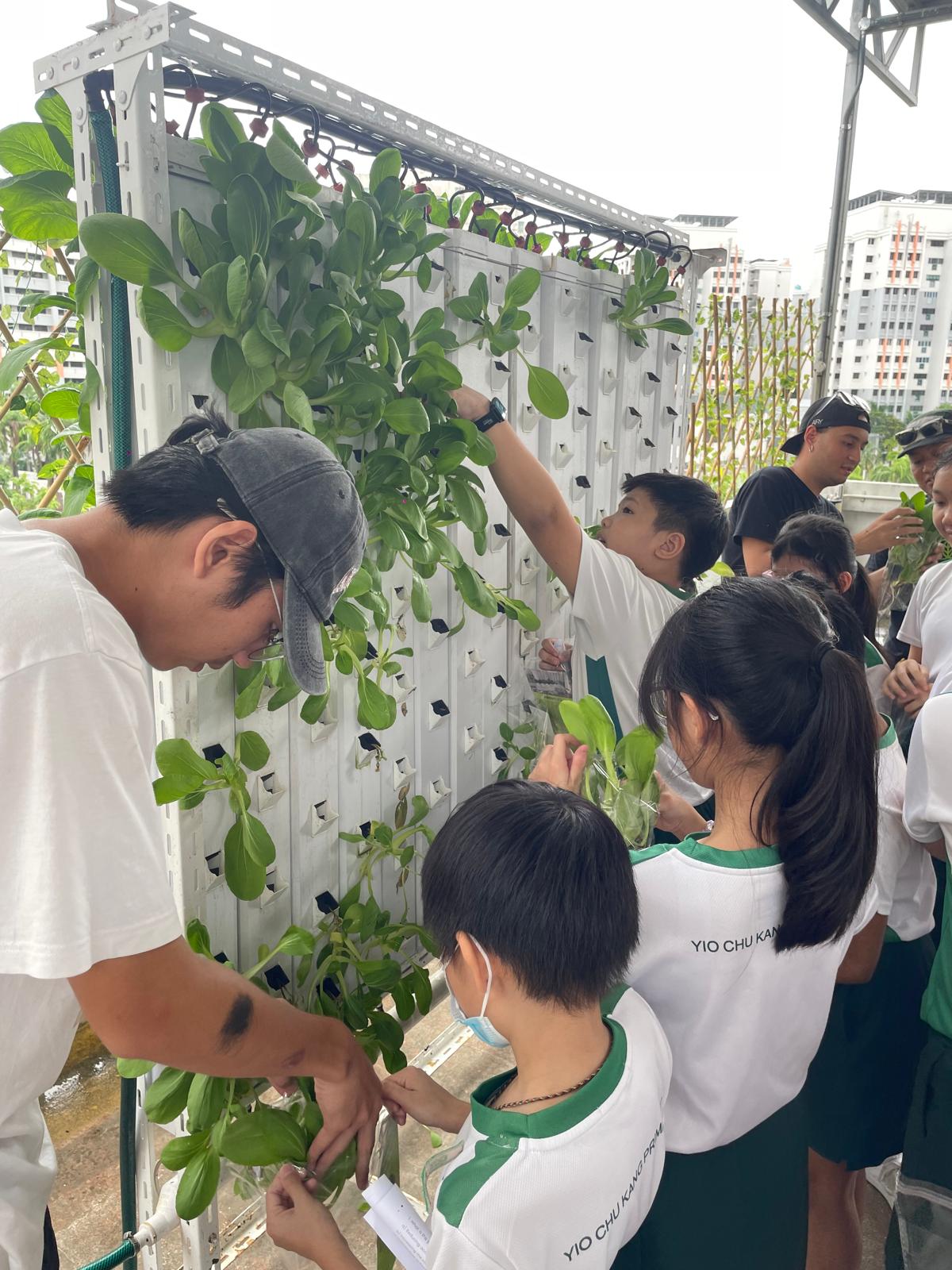
|
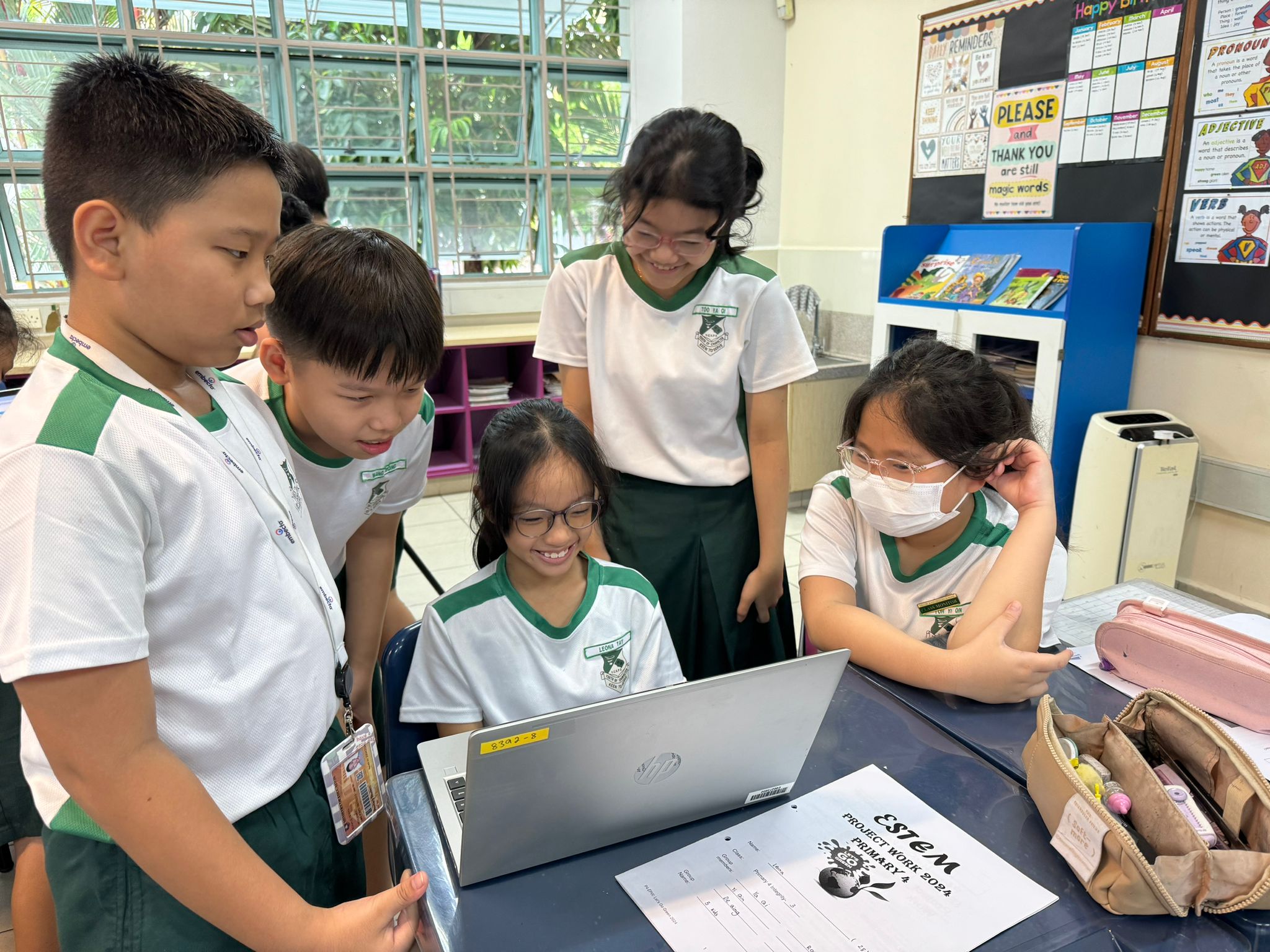
|
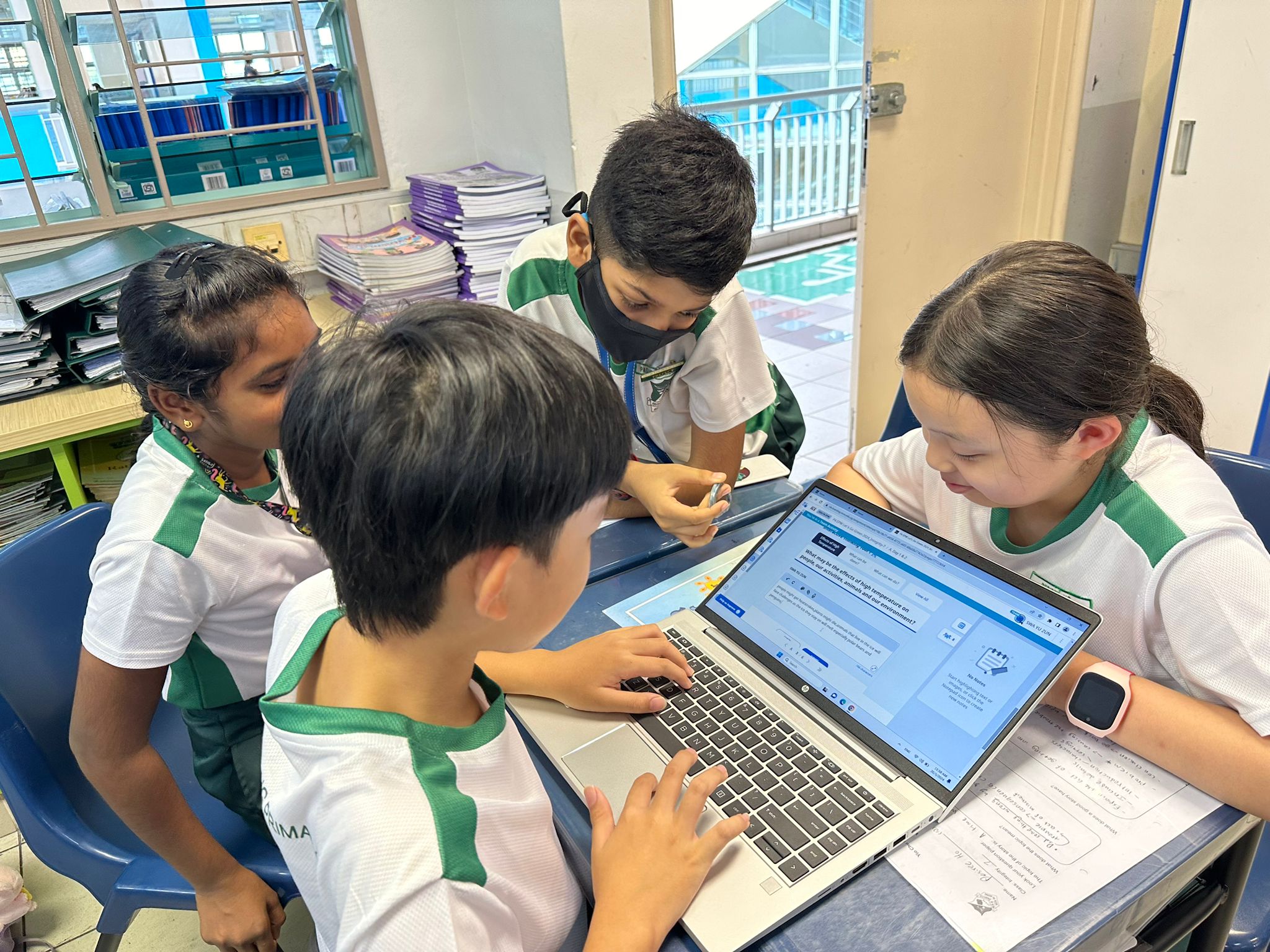
|
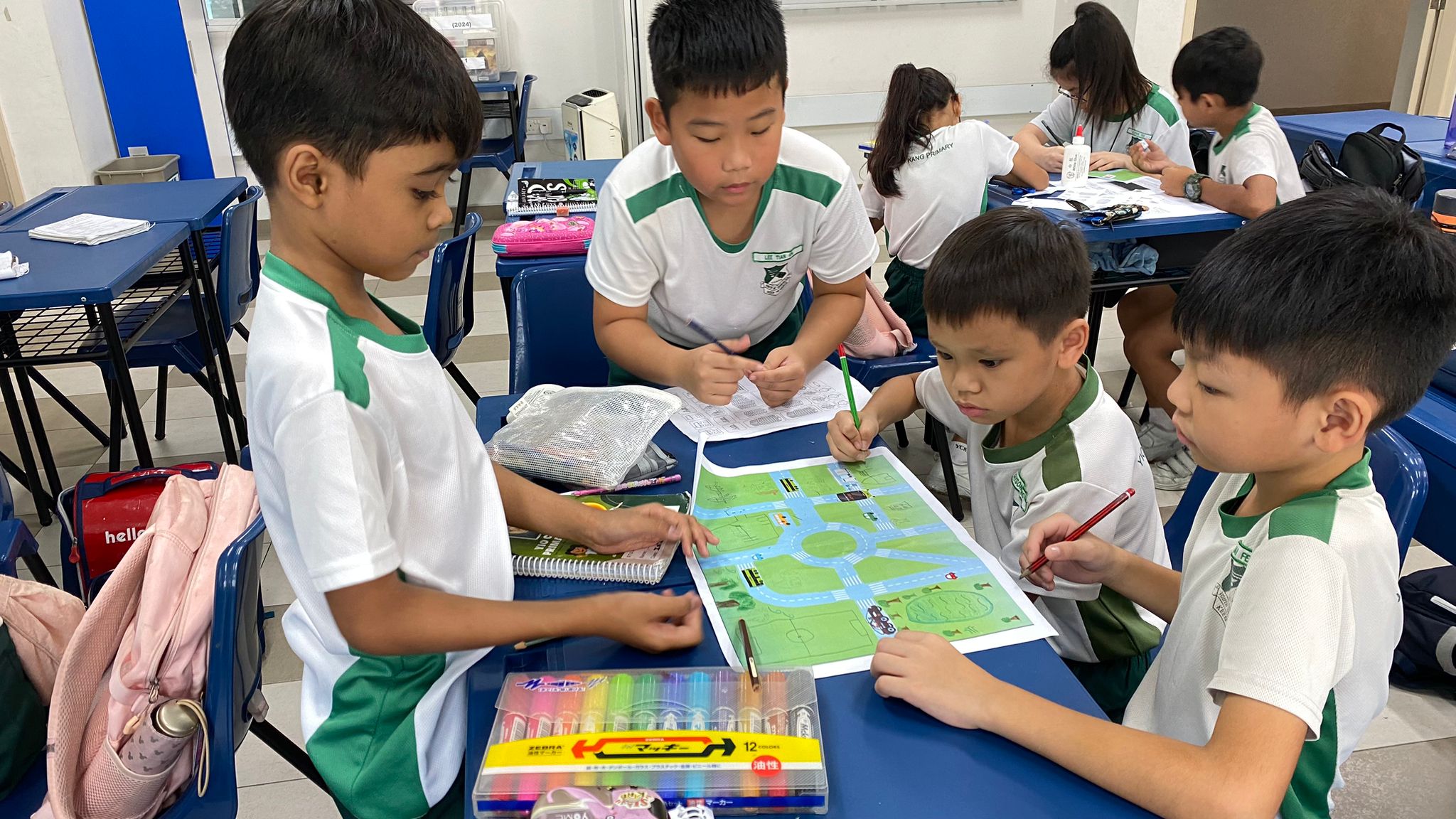
|
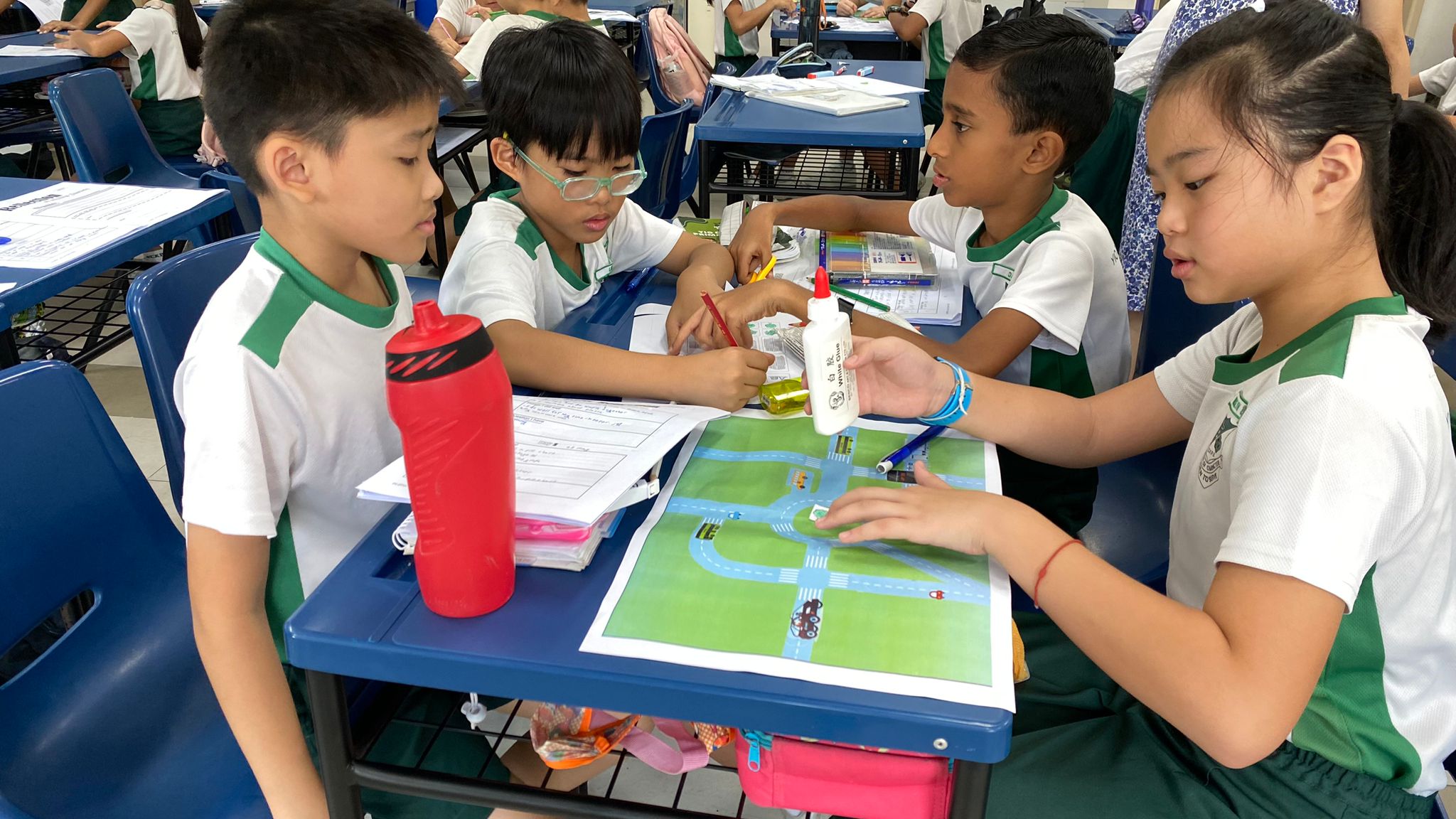
|
|
|
Aligned to the Primary Four EPW theme, “Care for the Environment” with a focus on Urban Greenery and Food Sustainability, students learn more about the impact of environmental issues on food sustainability. They also visited Greenhood, an urban farm which using modern technology to grow vegetables on a roof of a multi-storey carpark. |
||
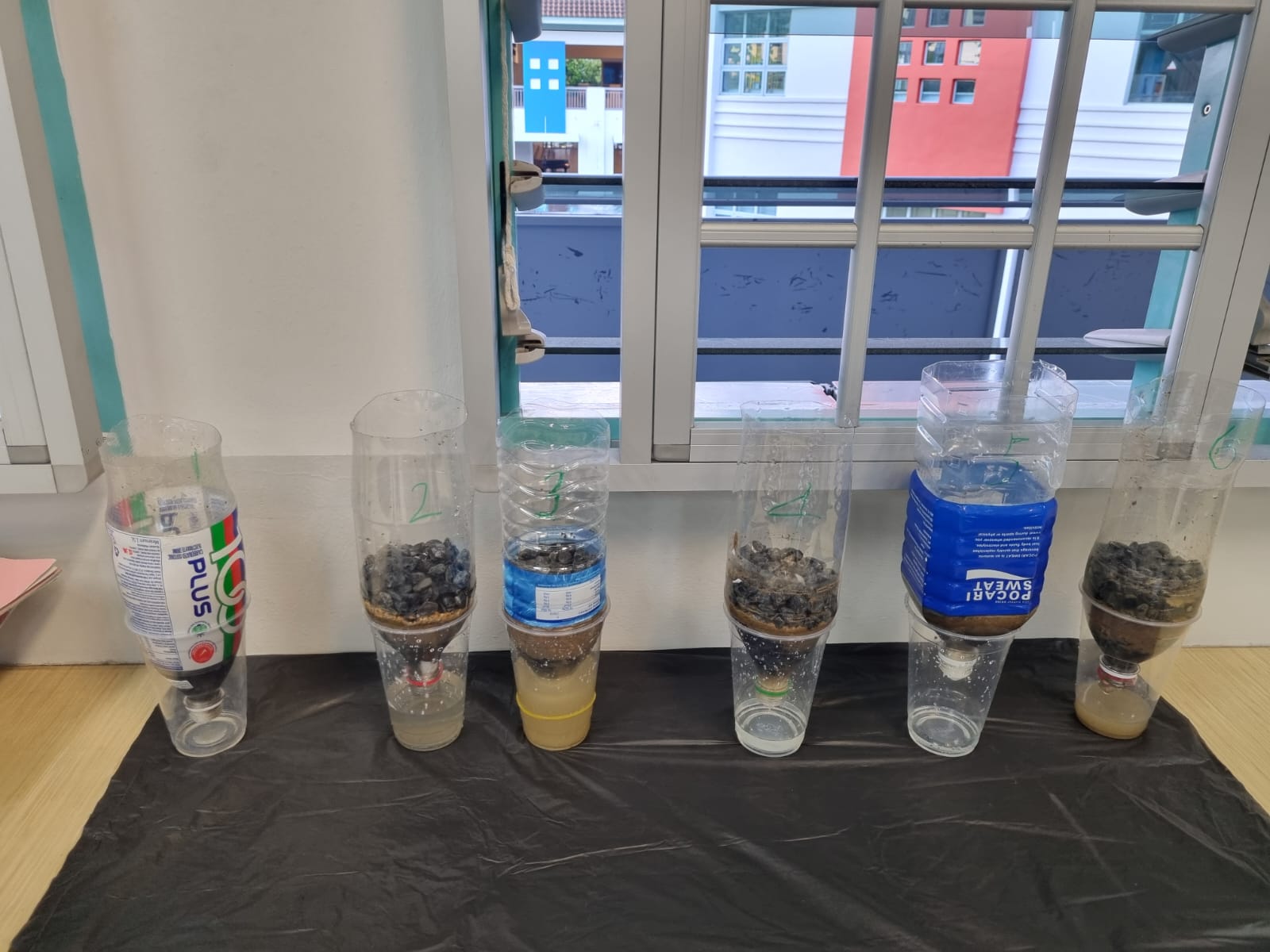
|
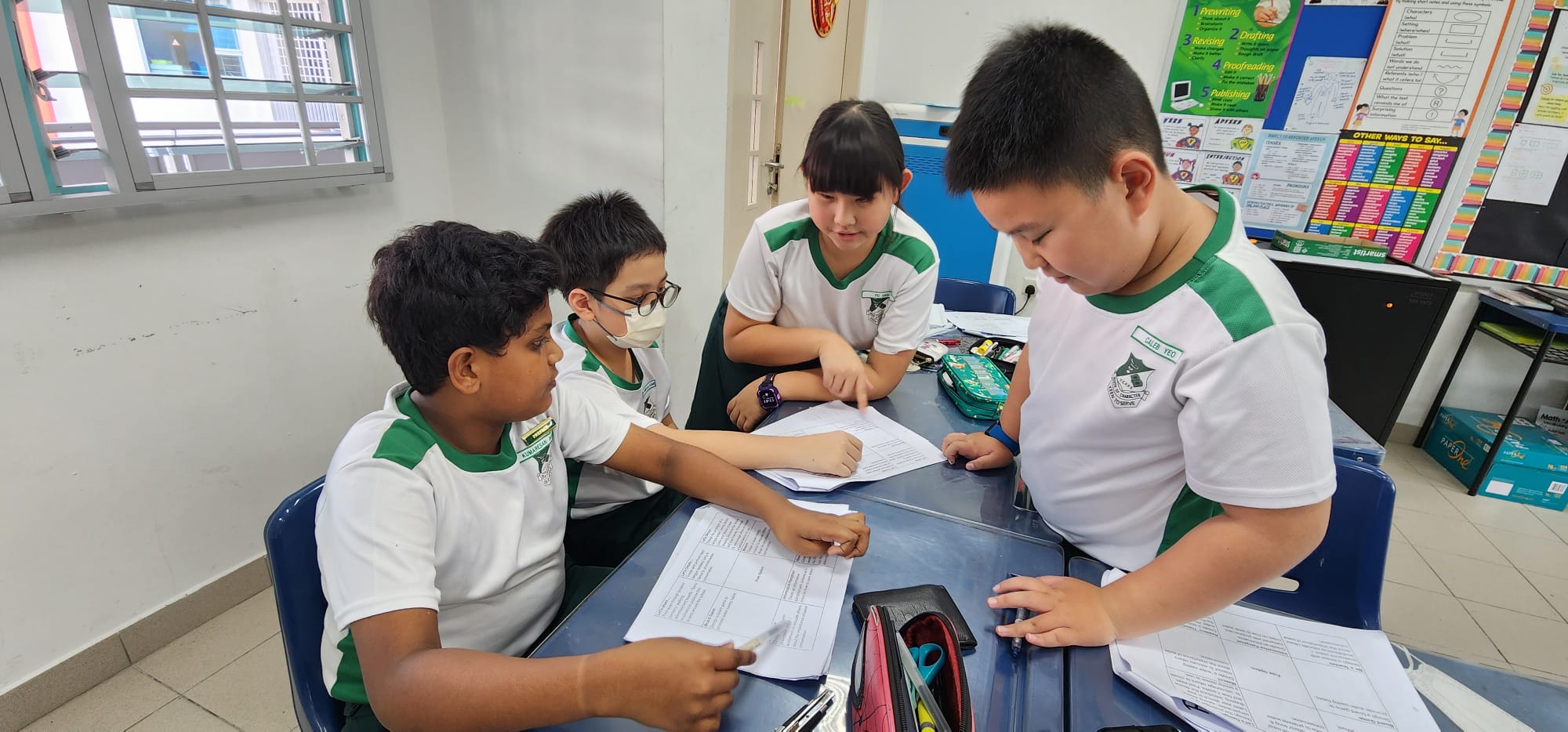
|
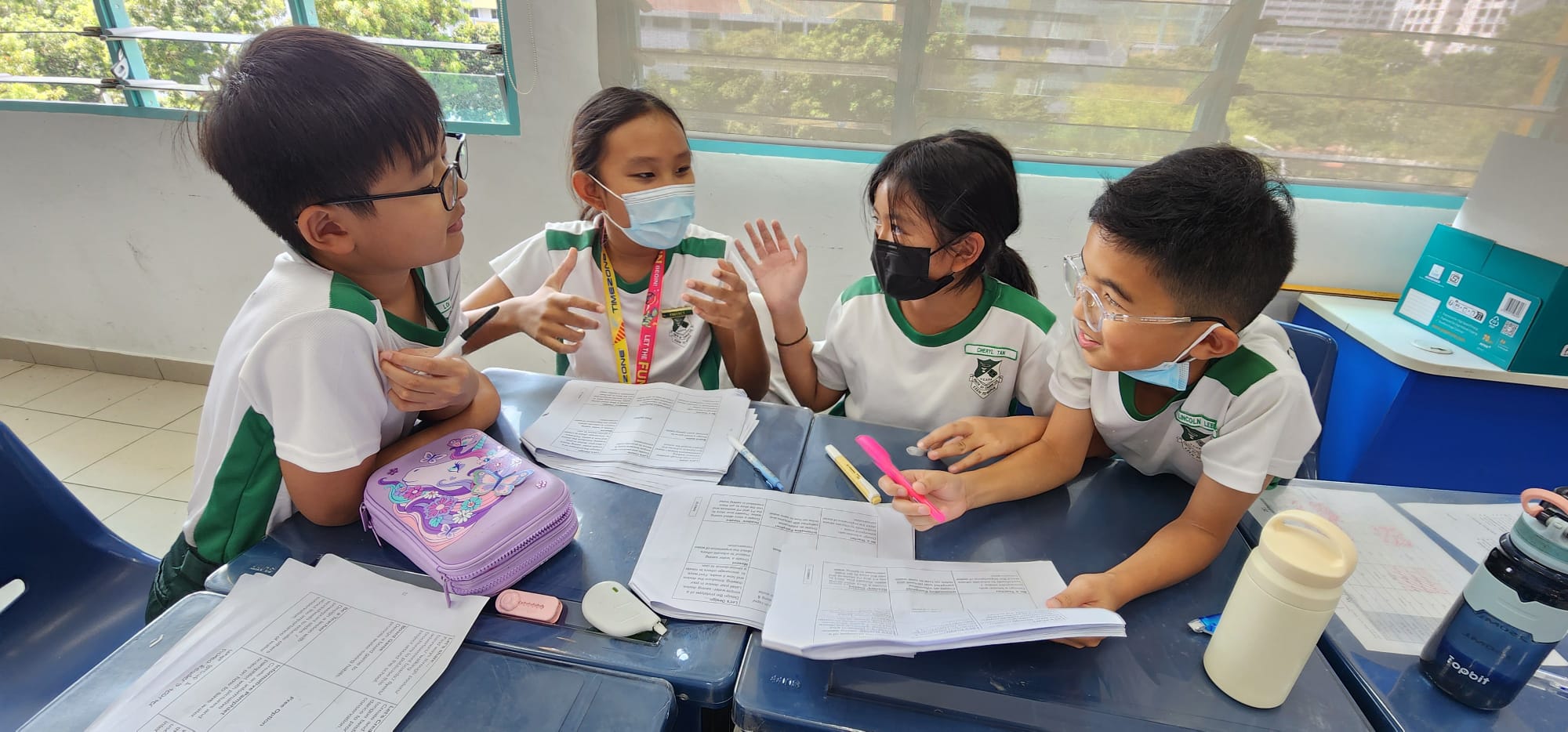
|
|---|---|---|
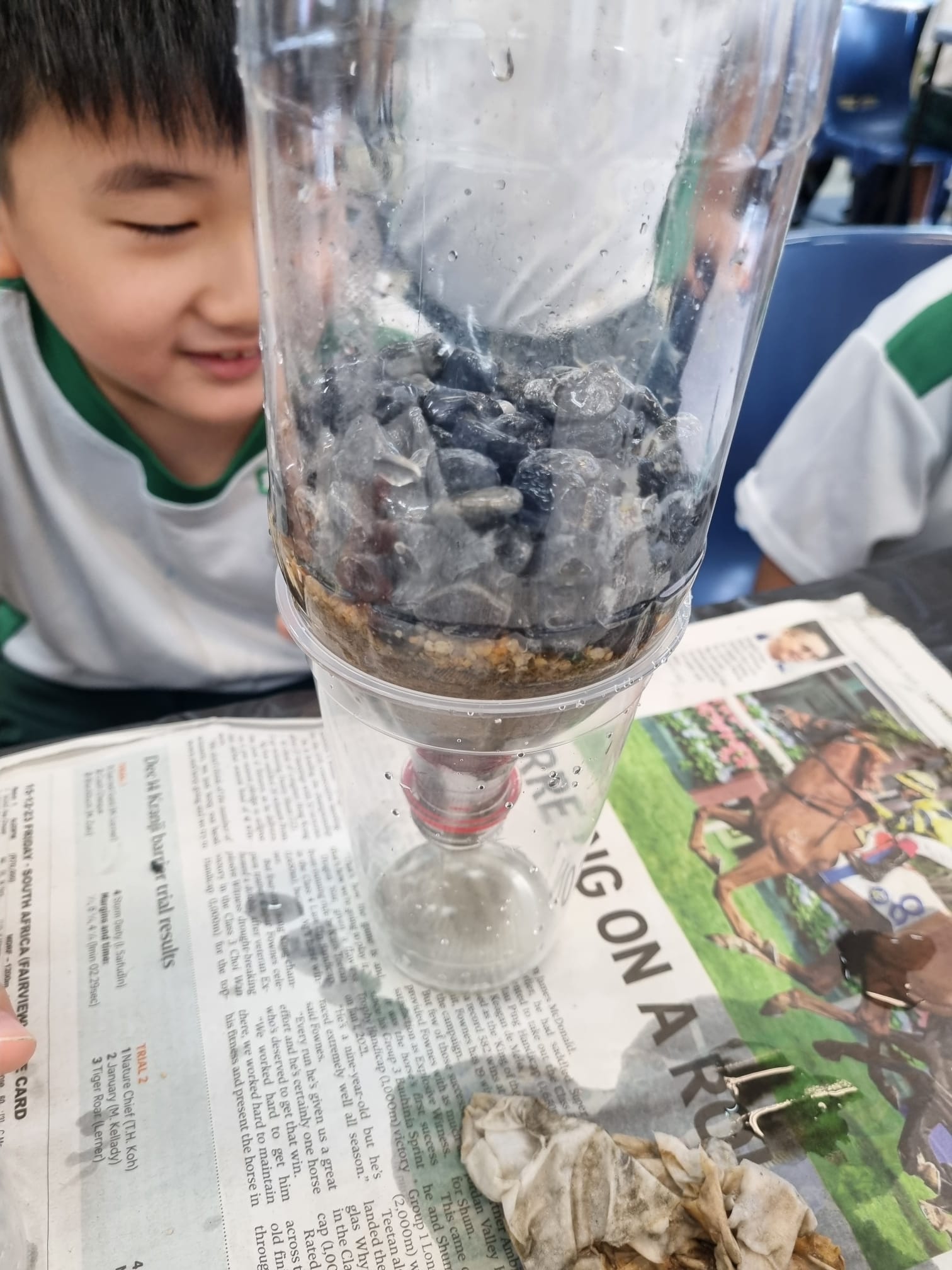
|
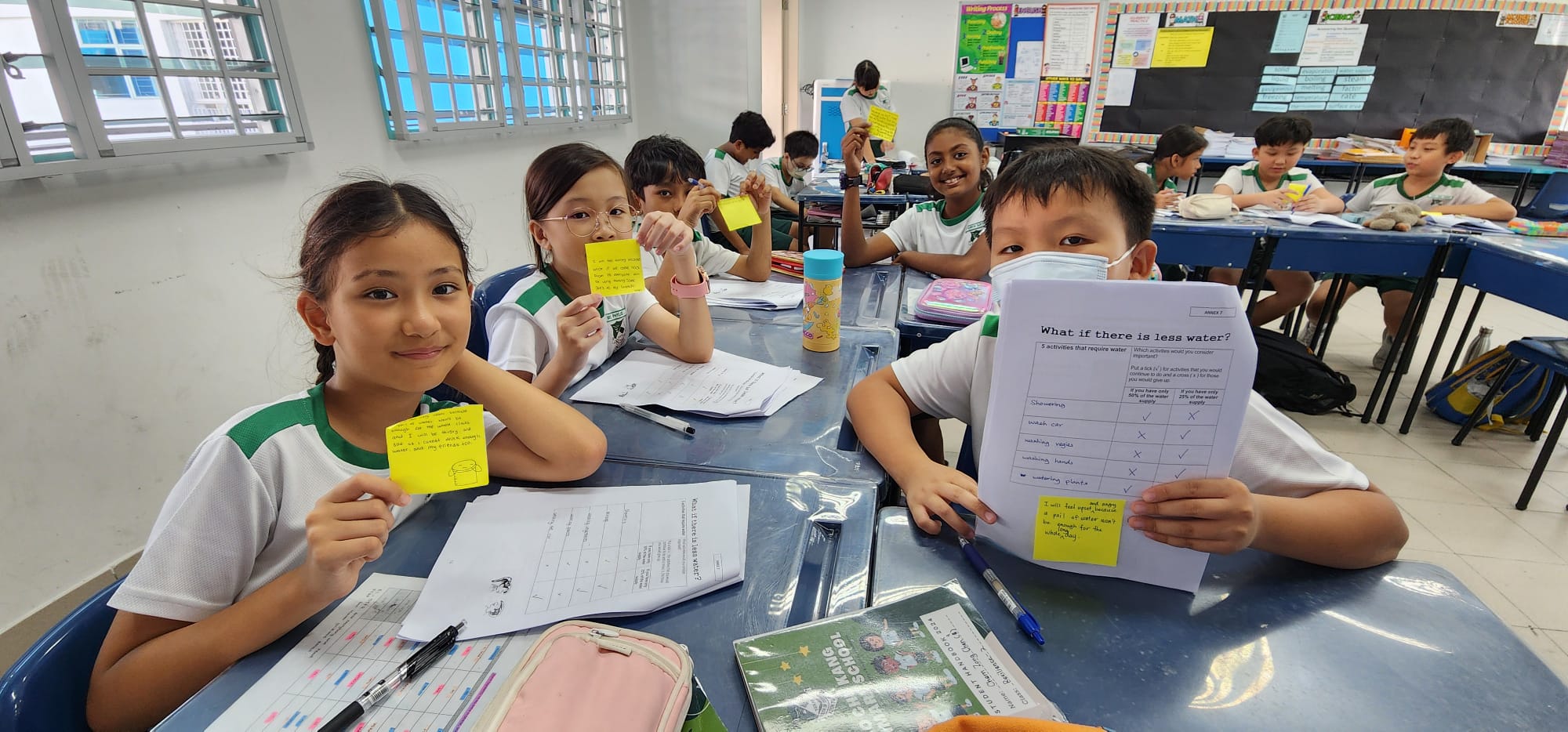
|
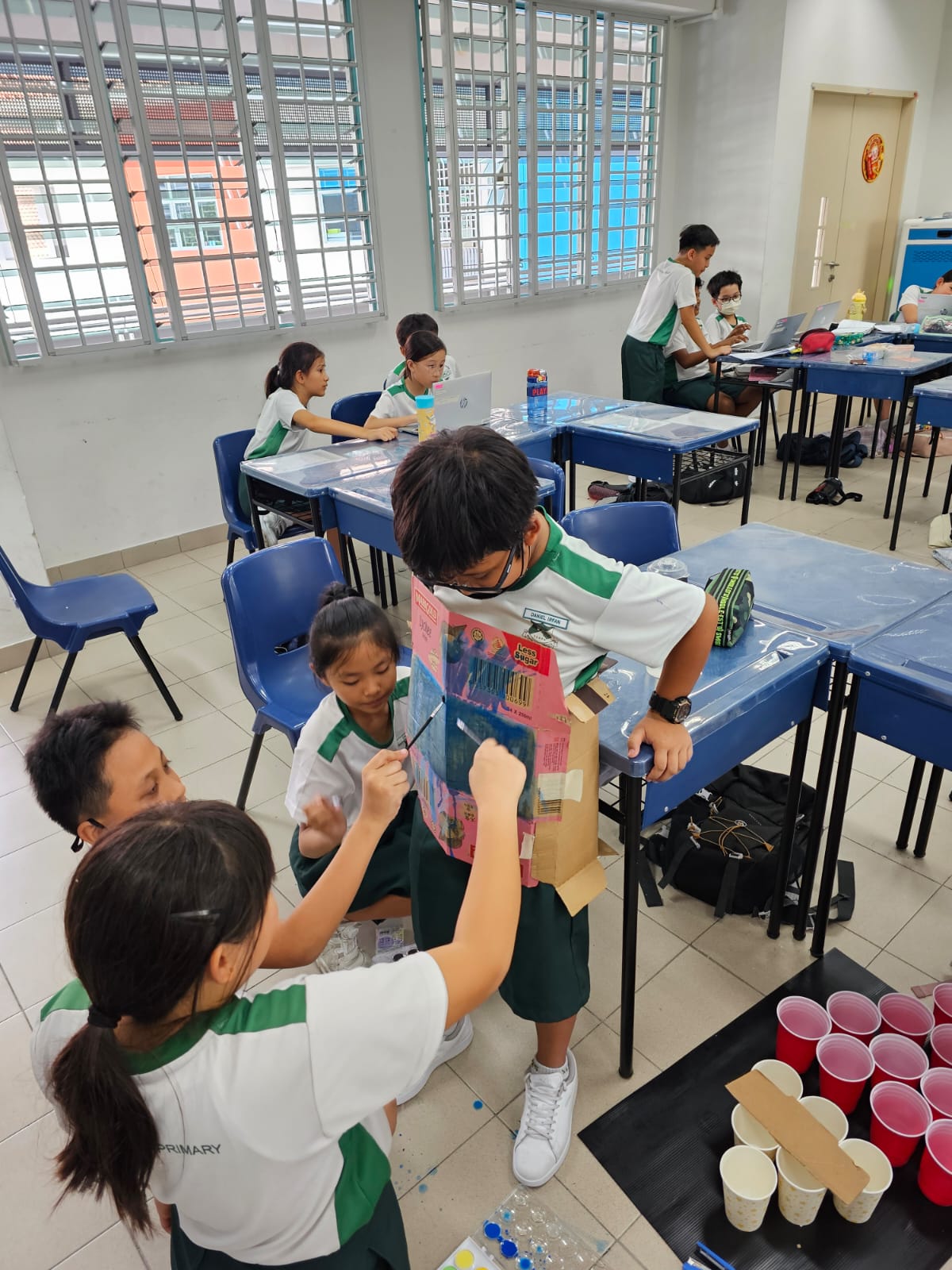
|
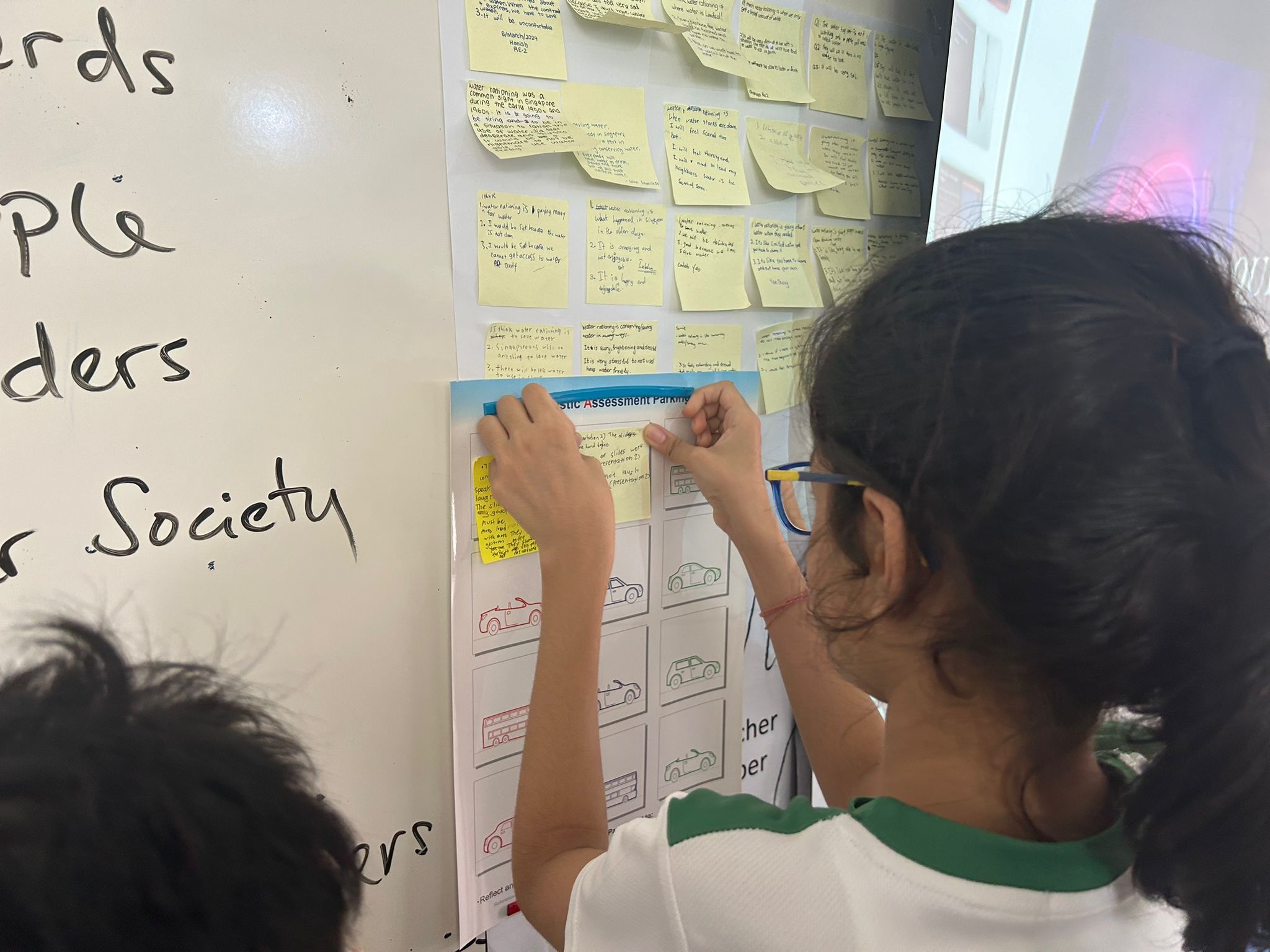
|
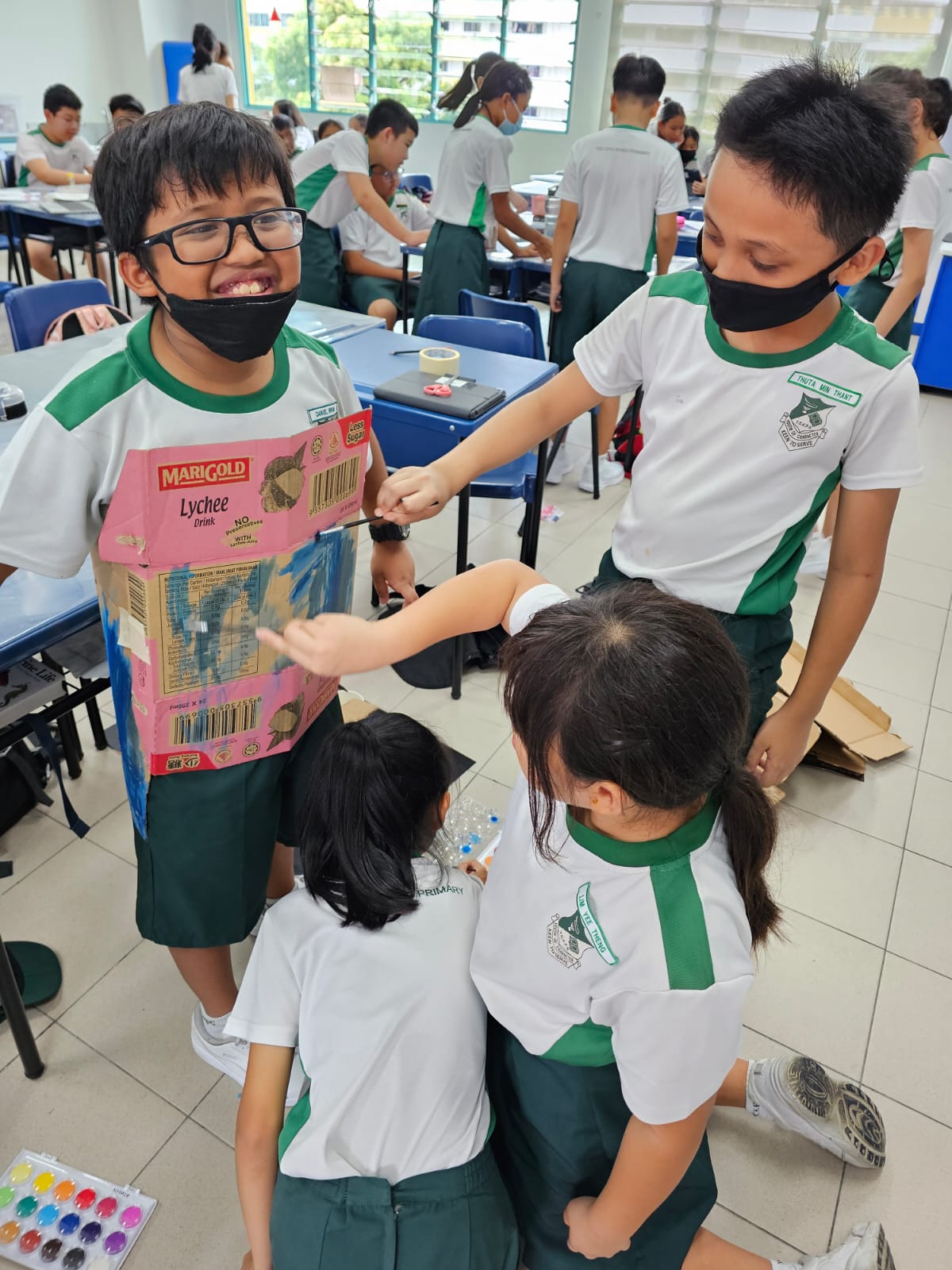
|
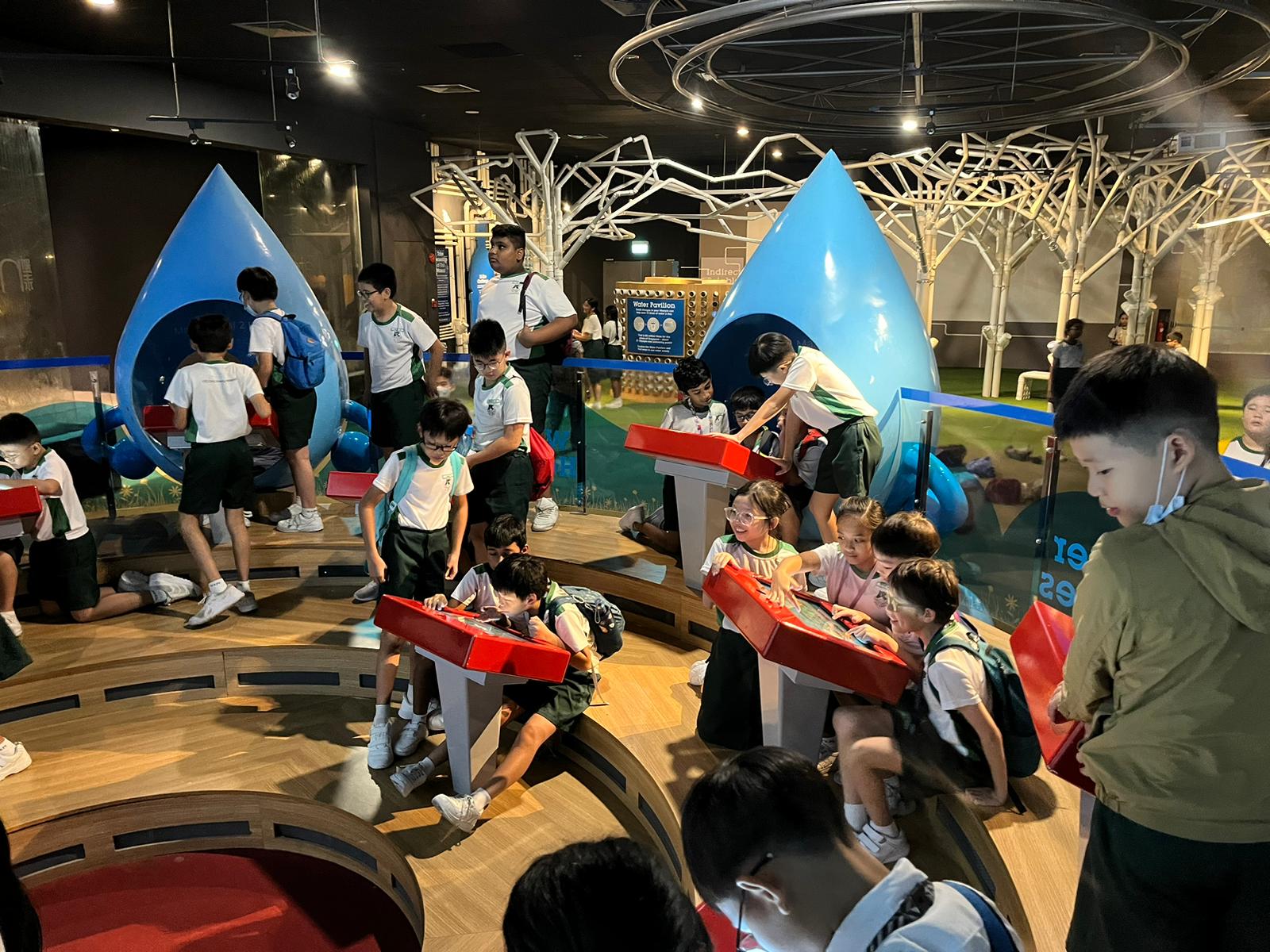
|
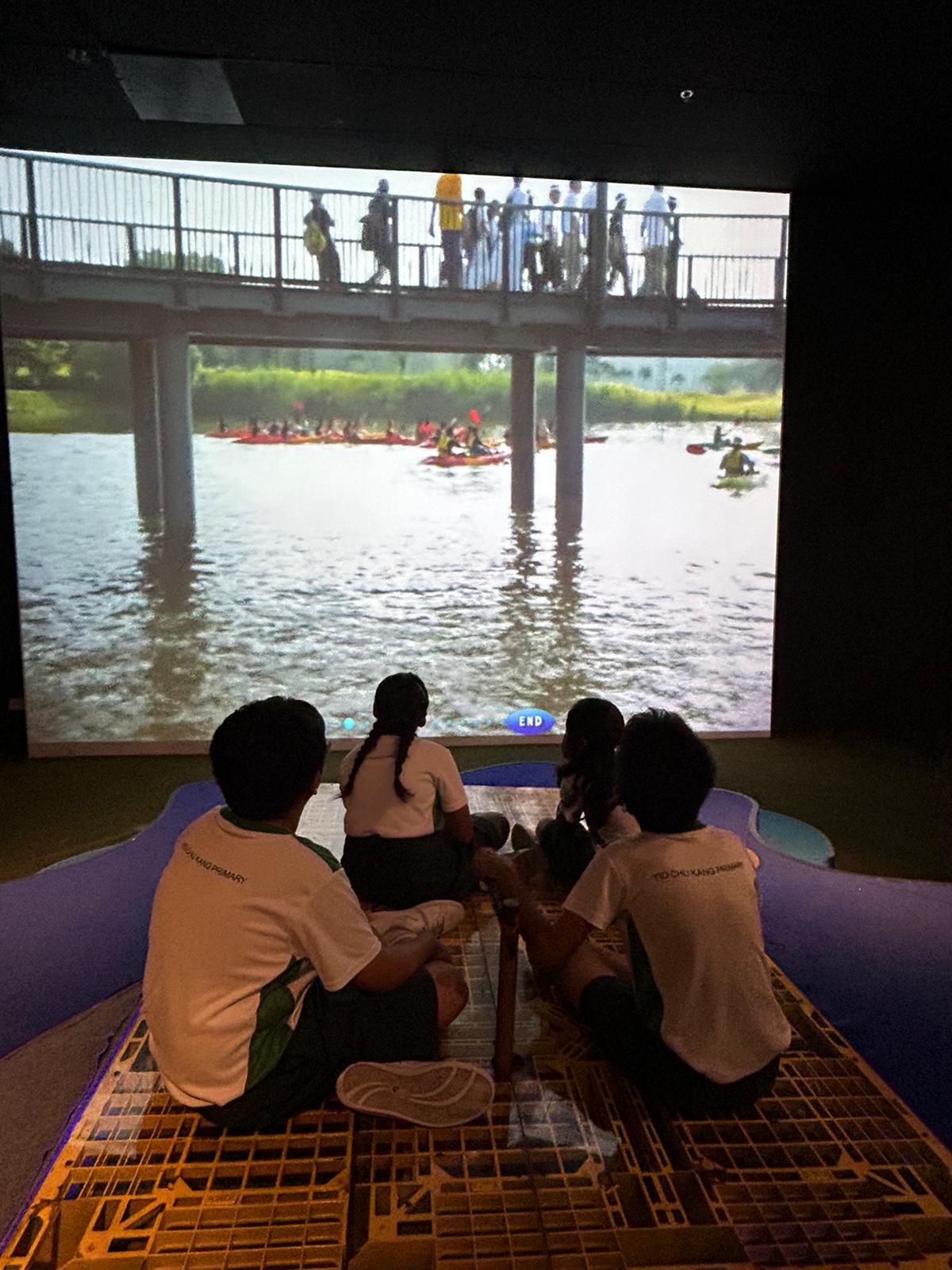
|
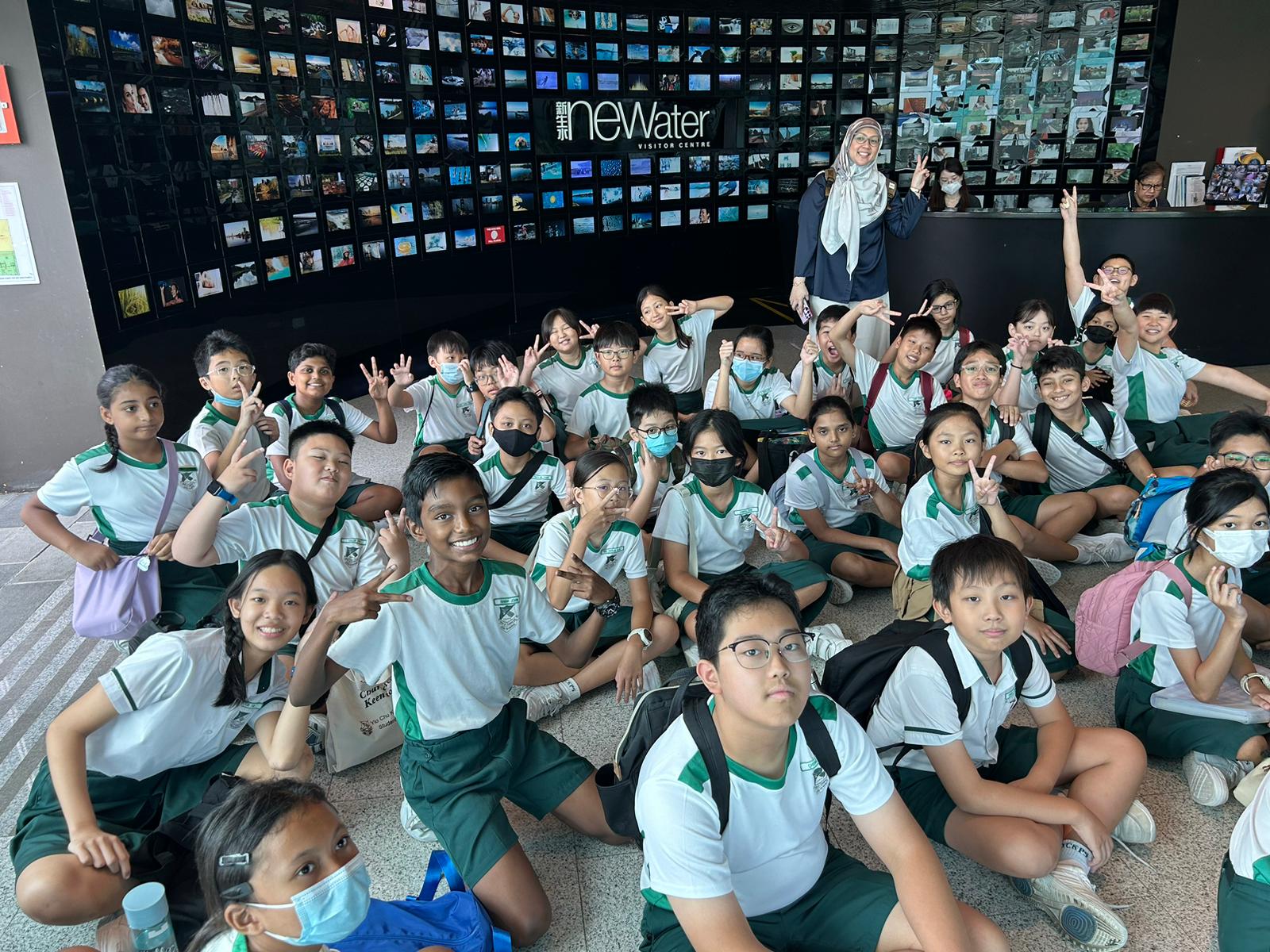
|
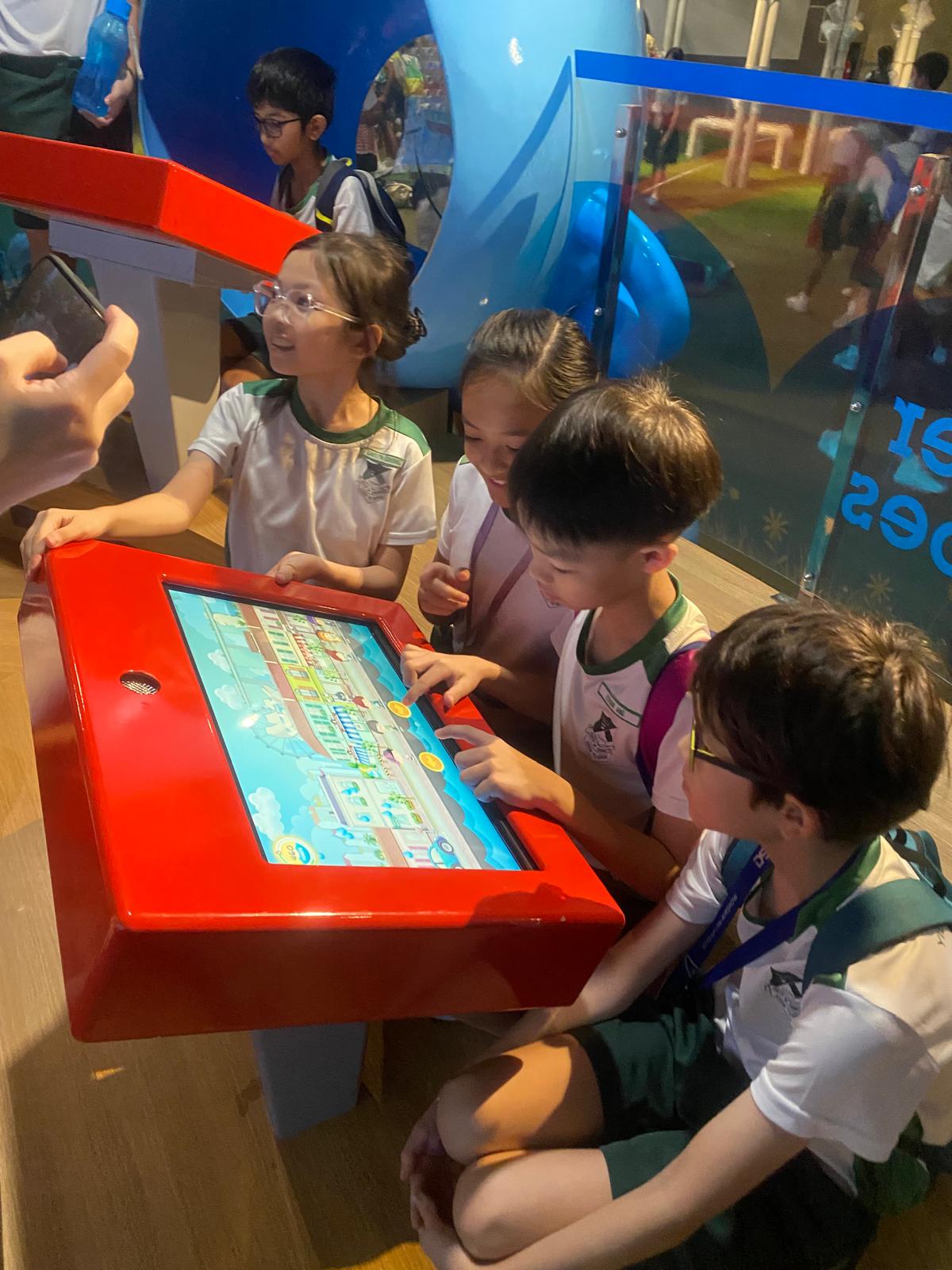
|
|
"Every Drop Counts” is the theme for Primary Five EPW where students learn about water scarcity and the importance of Water conservation. The highlight of the programme is when students built their own water filtration system using recycled materials. They also visited the NeWater Treatment Plant to learn more about one of Singapore’s Four National taps. |
||
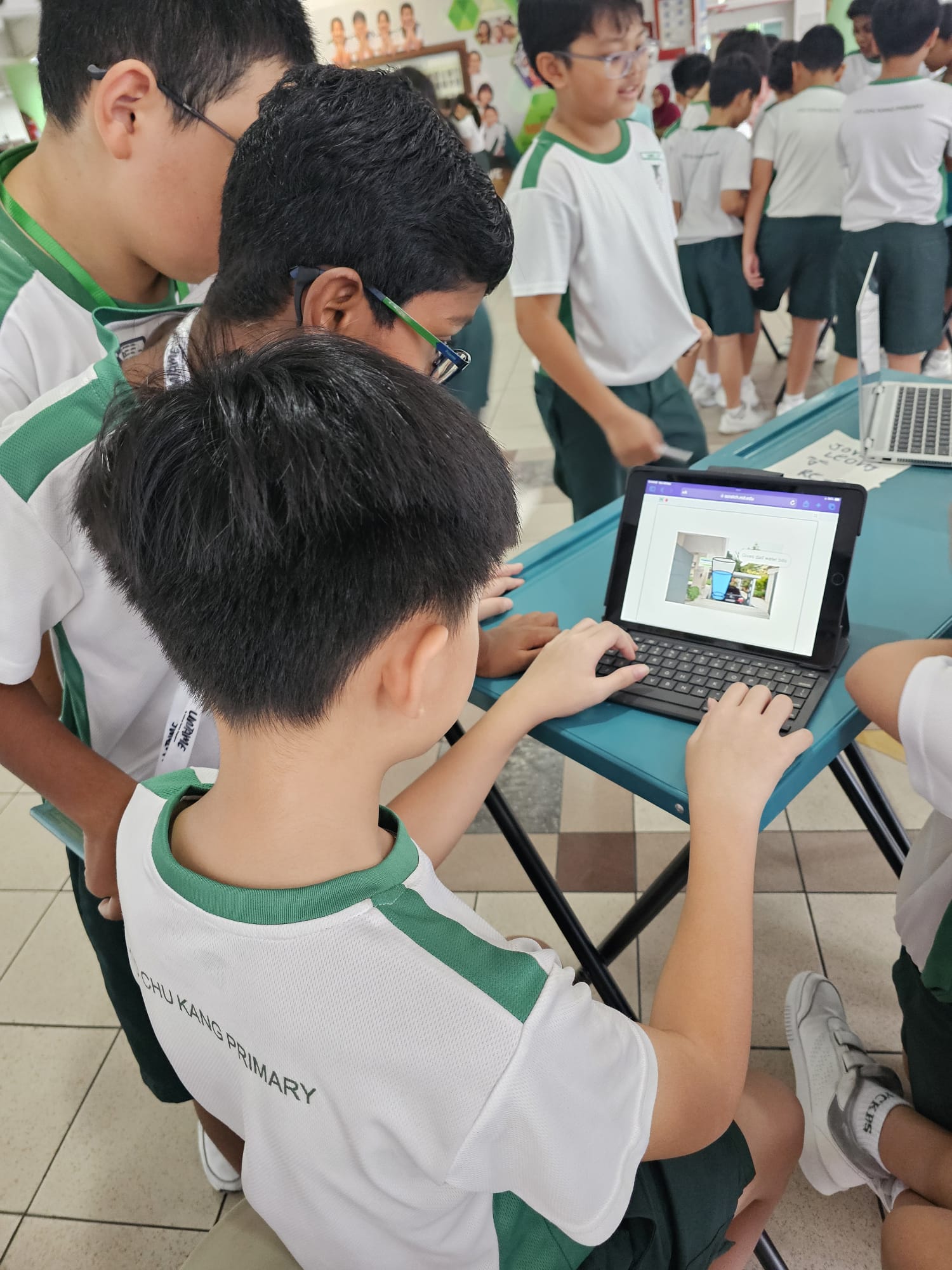
|
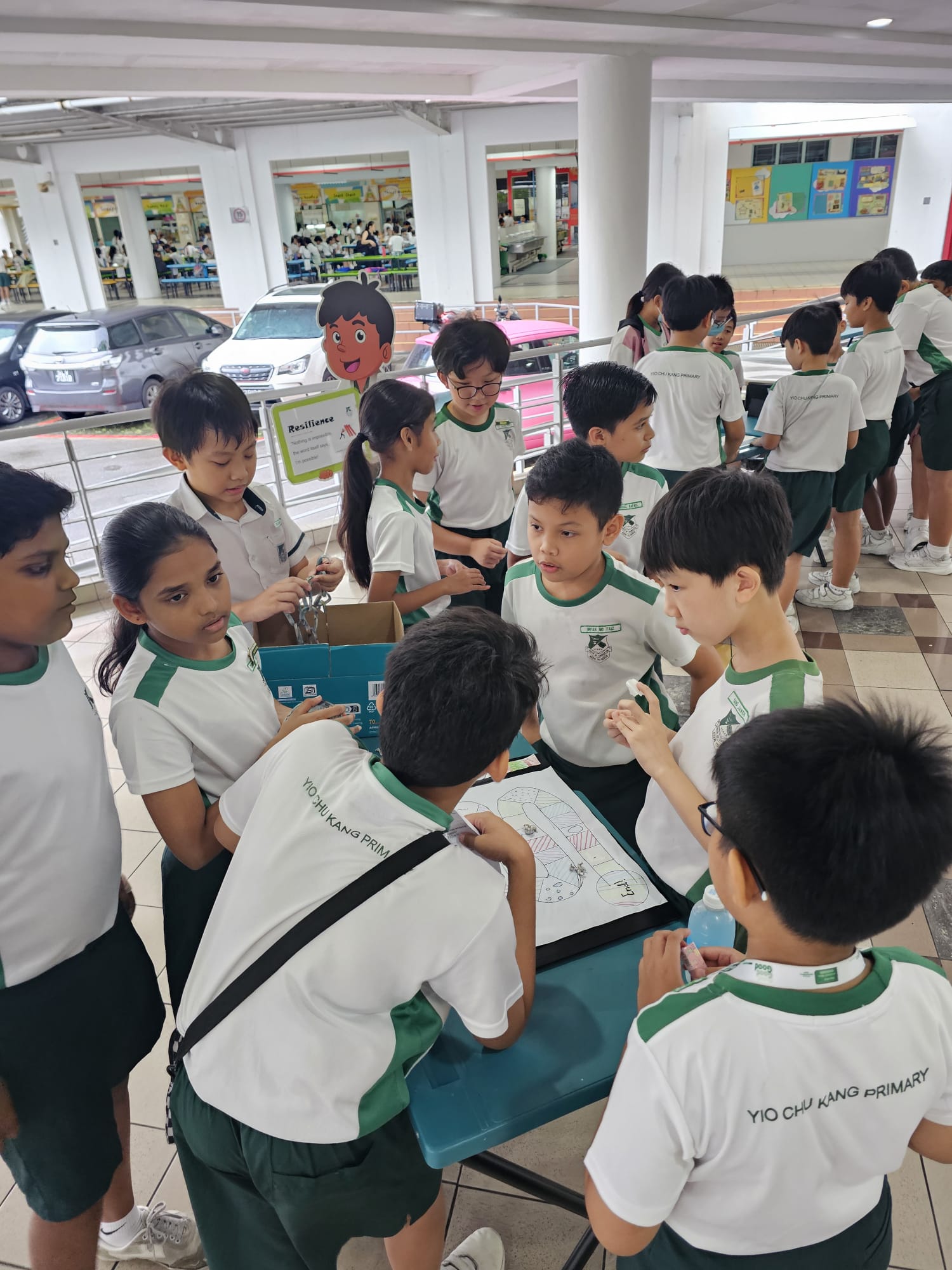
|
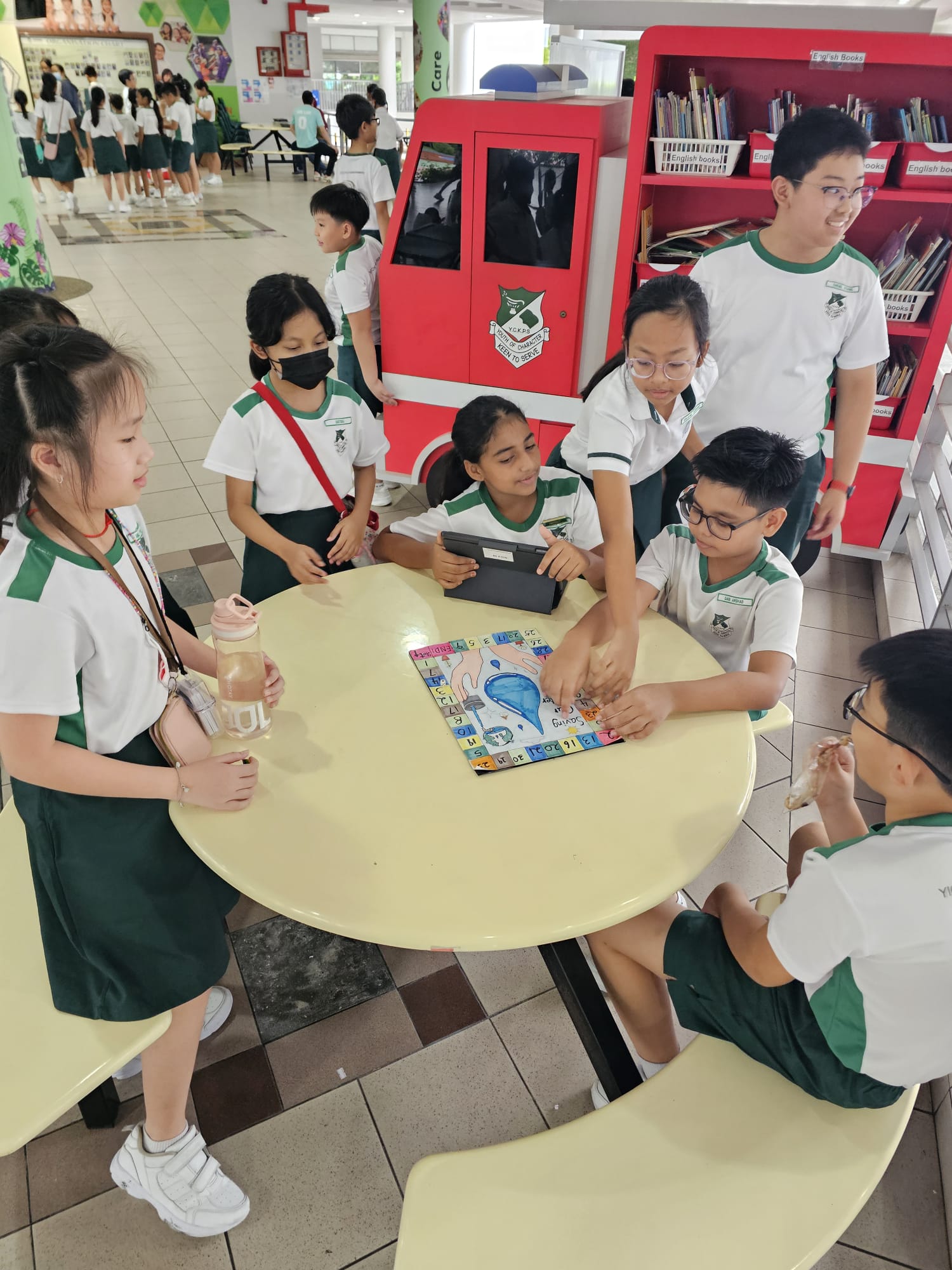
|
|---|---|---|
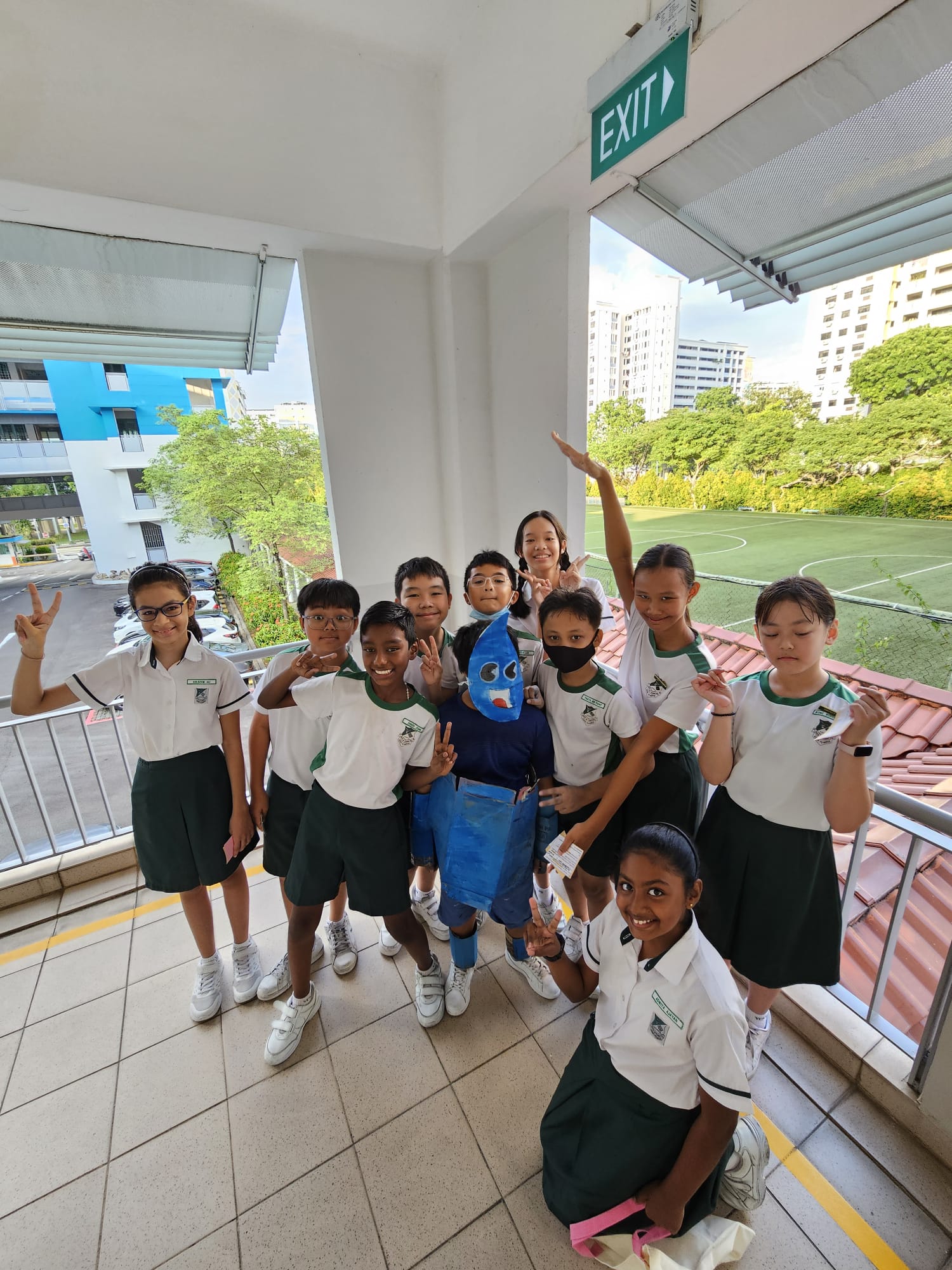
|
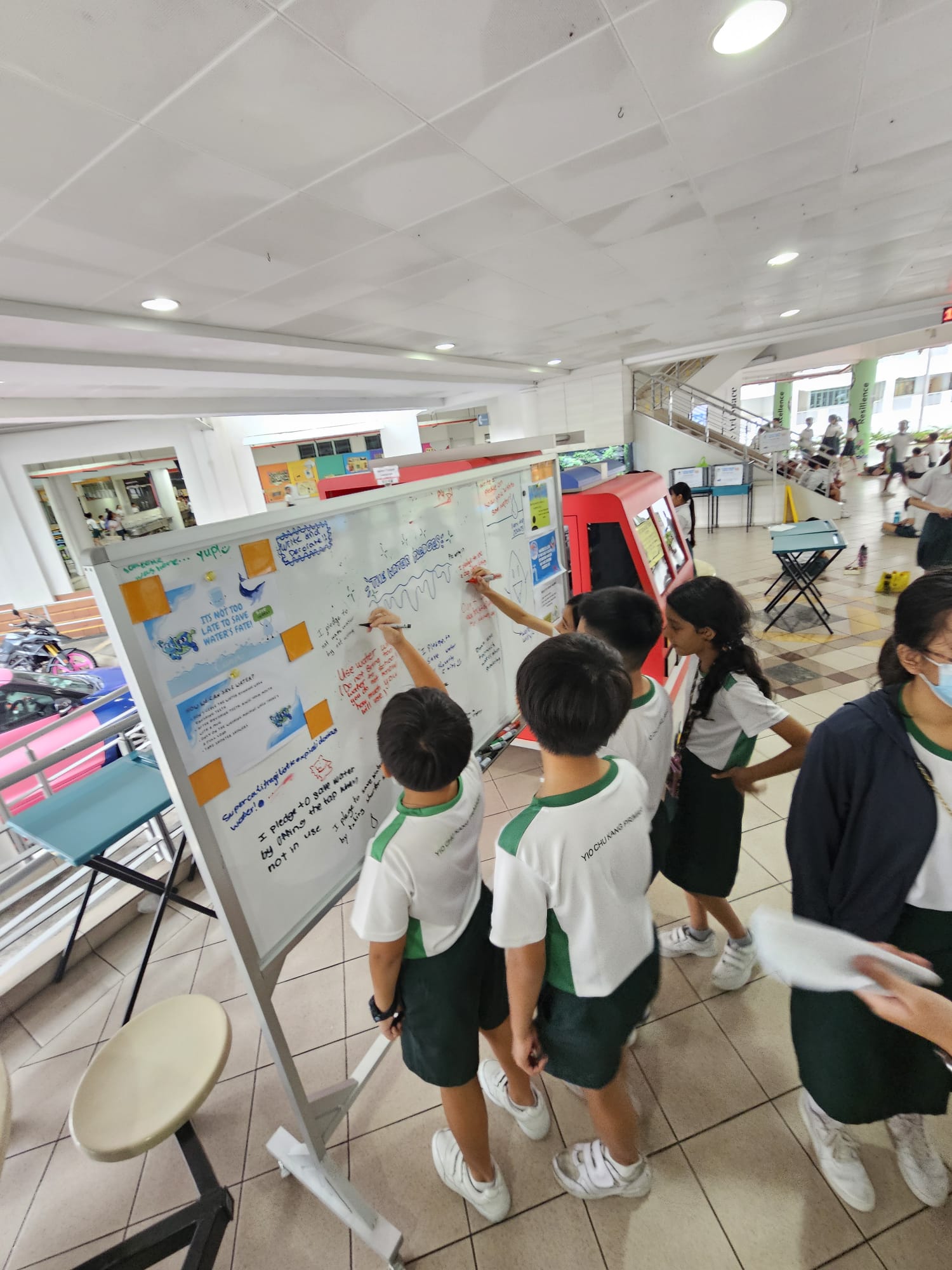
|
|
|
Following up on EPW, Primary 5 engaged students in other levels through games, making pledges and assembly talk to educate and encourage the importance of water conservation. |
||
🌏 E – Extending Learning about the Environment
Beyond the classroom, students deepen their environmental knowledge through hands-on projects, collaborative STEM challenges, and community outreach efforts. These experiences empower them to become confident problem-solvers and advocates for sustainability.

